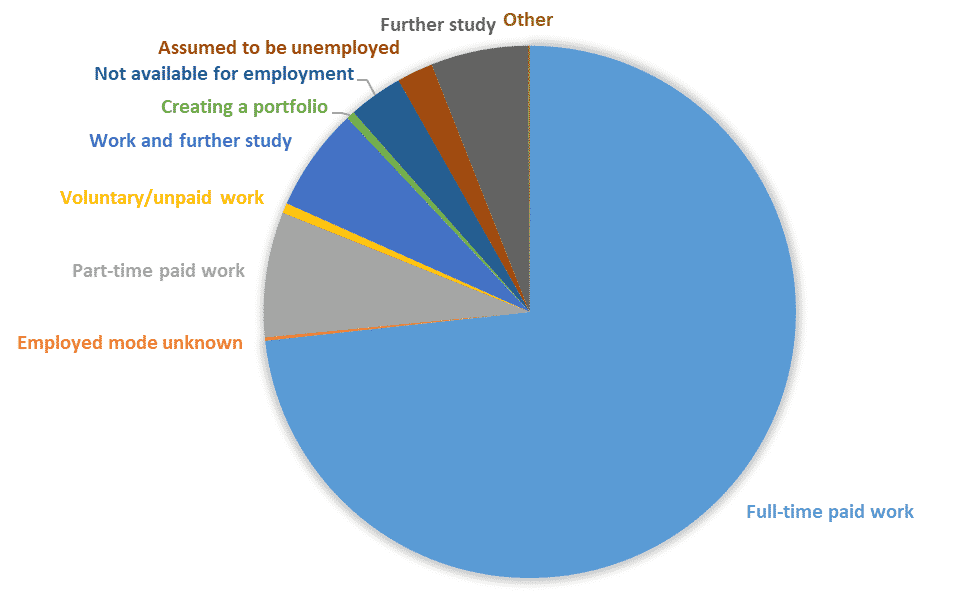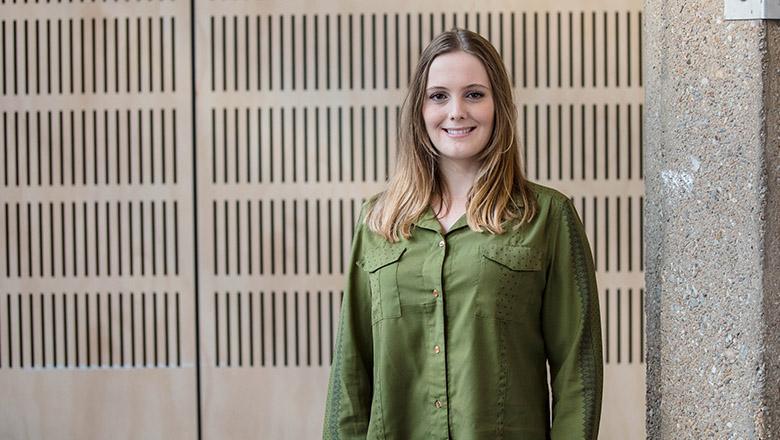2025 Best Online PhD in Sociology [Doctorate Guide]

With an online PhD in Sociology, you may earn a respected degree in a manner that suits your on-the-go lifestyle.

Earning a doctorate in sociology can help prepare you to accept academic positions or to serve as a leader in government, business, or nonprofit organizations.
By going through an online doctorate program in sociology, you may sharpen your research skills. With this terminal degree, you may also prove yourself an expert in social dynamics and may set yourself up for a rewarding career inside or outside of academia.
Editorial Listing ShortCode:

Universities Offering Online PhD in Sociology Degree Programs
Methodology: The following school list is in alphabetical order. To be included, a college or university must be regionally accredited and offer sociology degree programs online or in a hybrid format.
California Institute of Technology
The Doctorate of Sociology program at the California Institute of Technology usually takes three years to complete. It is uniquely designed to address subjects related to law, economics, history, anthropology and political science.
Students are encouraged to start their research early and to connect with mentors who can help them with post-graduation employment opportunities.
Caltech is accredited by the WASC Senior College and University Commission.
Capella University
Capella University offers a PhD in Human Services program that combines core classes with electives, specializations, research seminars, and dissertation preparation. Everything is online, including virtual simulations of real-world scenarios that students might encounter in the future. The program consists of 77 quarter credits.
Capella University is accredited by the Higher Learning Commission.
Colorado State University
Colorado State University has multiple specializations for its PhD of Sociology program. These include Food and Agriculture, Crime and Law, Environmental and Natural Resources, and Social Justice and Governance.
Students are expected to learn both theory and practice as they explore everything from research methodologies to contemporary practices in human services.
Colorado State is accredited by The Higher Learning Commission.
Johns Hopkins University
There are two doctorate-level sociology programs at Johns Hopkins University: the Program on Global Social Change (PGSC) and the Program on Social Inequality (PSI). There’s also a joint program that combines sociology with applied mathematics and statistics.
Depending on your area of focus, you can study things like globalization, diversity, government reform, and linear models for social sciences.
The Johns Hopkins University is accredited by the Middle States Commission on Higher Education.
Louisiana State University
The PhD of Sociology program at Louisiana State University offers a well-rounded curriculum in theory, practice, research, tools, and methods. The program usually requires five years to complete.
Students are encouraged to choose a specialty area and work with faculty advisors to prepare grants, co-author papers, and make presentations at industry conferences.
Louisiana State University is accredited by the Southern Association of Colleges and Schools Commission on Colleges.
University of Iowa
The University of Iowa offers both a Master’s and a PhD in Sociology. Classes are available online or in person, and subjects cover topics such as economics, policy, inequality, global affairs, and human rights.
Students are encouraged to choose a focus area for their studies to maximize their opportunities for research and employment.
The University of Iowa is accredited by the Higher Learning Commission.
University of New Mexico
Though it doesn’t offer a separate PhD program for sociology, the University of New Mexico offers a combined master’s and PhD program for extended graduate-level study. From statistics to methods of social research, a variety of important topics in sociology are covered in this well-rounded program. Online classes must be approved by the faculty.
UNM is accredited by the Higher Learning Commission.
University of Tennessee – Knoxville
The University of Tennessee, Knoxville offers a PhD in Sociology program that consists of 51 credits. These are halfway divided between graduate coursework and dissertation research and preparation.
Specializations include Criminology, Political Economy, Environmental Sociology, and Critical Race and Ethnic Studies.
The University of Tennessee – Knoxville is accredited by the Southern Association of Colleges and Schools Commission on Colleges.
Walden University
Walden University offers a hybrid degree program that is designed to prepare students for a variety of health services careers. This program is a mix of online coursework and real-world residencies.
It’s a PhD in Social Work rather than Sociology, but many of the subjects and skills are also relevant to sociology students. It includes specializations in sociology-related concepts, such as public policy and administration.
Walden is accredited by The Higher Learning Commission.
Wilmington University
Wilmington University offers a unique doctorate program for students interested in social science called Prevention Science.
This program focuses on identifying and evaluating the various personal, financial, and social risks faced by individuals and families within broader communities. Classes are 100% online, and students can create their own study areas or choose from pre-established ones.
Wilmington University is accredited by the Middle States Commission on Higher Education.
Online PhD in Sociology Programs
A terminal degree in sociology can help pave the way for an academic career or a leadership role in government or the private sector.
Since a PhD is the top degree in this field, many schools expect students to have a master’s degree before diving into more advanced studies. If you don’t yet hold a master’s degree, you may be able to earn one in conjunction with your doctoral studies at select schools.
During a sociology doctoral program, you’ll often study the ways that people behave and interact in society and organizations. Most students take one or more courses on the major theories in sociological thought.
Research is a critical component of earning a PhD, so you’ll probably take several classes dedicated to enhancing your research skills. You may learn to perform statistical analysis, conduct interviews, and write scientific papers.
Most PhD candidates choose a particular focus area for their studies. Options at your school may include urban development, politics and government, race and equality, family structure, healthcare, or religion. Some universities may allow you to choose two specialization areas.
The focus you choose may influence your PhD coursework. Possible class topics could include gender, race, family, and class structure. You might also gain new insights into political systems or regional development. Other courses in your school’s sociology department may address immigration, aging, or crime.
Once you’ve completed your coursework and successfully defended your dissertation, you might secure a job in academia. If you’re working for a college, your responsibilities may include teaching classes and conducting research.
Sociology jobs may also be found in other sectors. You might work for a think tank to produce sociological insights that inform policy decisions, head up a social services agency, or spearhead initiatives that support urban development.
Other jobs may be available in marketing, human resources, or publishing. For those roles, you might lean heavily on the research and communications skills that you may acquire during your doctoral program.
Sociology Careers & Salaries

Many people equate a Ph.D. in Sociology with an academic career. That’s not an unreasonable assumption. Most people with this degree do pursue academic work after graduation.
In higher education institutions, you may serve on the faculty or carry out research. With a PhD, you may eventually qualify for a tenured position. Not all graduates have their sights set on an academic track, though. If you start exploring the opportunities for sociologists outside of higher education, you might find a variety of intriguing possibilities.
Universities aren’t the only organizations that hire sociologists and other social scientists. Government agencies, private research organizations, and think tanks rely on these experts too. Your skills in data collection and research may translate into a career as a professional who analyzes market demographics or designs insightful survey questions.
According to the Bureau of Labor Statistics , sociologists earn an average annual salary of $86,110. Various jobs you may pursue with a sociology PhD include:
Sociologist jobs are growing at the average 4% rate, but other roles are increasing significantly more quickly. For example, the Bureau of Labor Statistics is predicting an 18% growth rate for market research analyst positions.
Your sociology training may help prepare you to understand the ways that people respond to life circumstances and interact in relationships. That knowledge might be advantageous for a career as a human resources manager or a nonprofit director. It might also be useful in an urban planning role.
Doctoral programs emphasize writing and communication skills. Publishing companies might appreciate such abilities and hire you to work as a writer or an editor. You may be involved with publishing texts related to your area of training or other types of books.
Your sociology background may also lead to a career as a counselor or a high school teacher. Additional training and certification would be required, though.
Sociology Doctoral Curriculum & Courses
You’ll earn credits for your online PhD degree in sociology by taking classes and completing your doctoral dissertation. The courses in your program may include:
- Criminology : You’ll study theories about the criminal mind and criminal behavior, and you may also explore how governments respond to crime.
- Family Structure : Your time in this course may survey various family structures and consider how family relationships influence children’s outcomes.
- Gender Topics : This class may discuss how perceived gender roles affect society or compare attitudes toward gender in various societies.
- Inequality in Society : You’ll explore how gender, race, ethnicity, sexuality, class, and other factors lead to societal rankings and divisions.
- Politics and Sociology : A political course may cover the ways that sociological theories intersect with governing and leadership decisions around the world and in your local community.
- Race and Racism : You will learn how historical racial issues and contemporary views on the matter affect people and shape communities.
- Research Methods for the Social Sciences : In preparation for your dissertation, you’ll study quantitative and qualitative approaches to conducting research.
- Rural Studies : This course will provide insights into contemporary rural communities and how to foster regional development.
- Social Theories : Early in your doctoral studies, you may take a class that covers the teachings of various classic and contemporary thinkers in the field of sociology.
- Urban Studies : You’ll investigate how metropolitan regions develop and consider how to shape effective policies for urban areas.
You may have the option to take electives from the sociology department or other departments whose courses align with your interests and career goals.
Admissions Requirements
Admission to a sociology PhD program can be competitive. If you want to earn your doctorate, you’ll often need to showcase your strengths through materials like:
- Essay that states your sociology goals
- Letters of reference from supervisors
- Resume or curriculum vitae that shows your educational and work history
- Transcripts that list previous undergraduate and graduate work
Whether you need to submit GRE scores varies from one institution to the next. While it’s a firm requirement at some schools, other colleges don’t take standardized tests into account. Some list test scores as an optional requirement or grant waivers to qualified applicants.
Accreditation
One of the most important factors to consider when comparing sociology PhD programs is whether the schools hold regional accreditation.
All reputable colleges are approved by one of the seven regional accrediting agencies in the US. Regional accreditation means that you can count on a college to provide a sound education. Your coursework is more likely to transfer to another school.
Academic institutions and employers will likely recognize your status as an expert who’s earned the highest possible degree in this field.
Financial Aid and Scholarships
There are steps you may take to secure funding assistance for your doctoral studies in sociology.
Government student aid is a primary source of assistance for many graduate students. To learn whether you qualify, you can fill out the Free Application for Federal Student Aid (FAFSA) . You may also be able to receive state loans or other types of government funding, such as federal work-study or state grants.
Private sources of assistance may include scholarships and fellowships. These financial gifts may help subsidize your tuition or your research. You can apply and may receive these awards if you’re selected as a recipient.
Your college might be another potential source of tuition help. Some doctoral programs grant stipends to students who work as teaching or research assistants. Finally, your employer may be a valuable contributor to your academic pursuits. Workplaces often help fund studies that can benefit the organization.
What Can You Do with a PhD in Sociology?
Working in academia is a popular career option for people with doctoral degrees in sociology. You might teach or conduct research at a college.
According to the Bureau of Labor Statistics, sociology department faculty earn between $38,910 and $145,990 each year. Sociologists may also work as researchers in nonacademic settings.
The Bureau of Labor Statistics says that 38% of sociologists are employed in research and development organizations, and 15% are employed by state governments. Self-employment may be an option for sociologists as well.
Other job options may include urban planner, market research analyst, human resources director, and social services manager.
How Much Do You Make with a PhD in Sociology?
Based on figures from the Bureau of Labor Statistics, the average annual salary for a sociologist is $86,110. The typical salary ranges from $52,640 to $143,020.
Some of the highest sociology earnings are in research and development firms. The median salary for sociologist jobs in that sector is $96,620. State government agencies come in as a close second with average annual earnings of $92,530 for sociologists.
Working as a human resources manager may be a top-paying career prospect for those with a sociology background. Those jobs often pay between $71,180 and $208,000. HR managers in scientific or technical organizations may bring in an average salary of $138,030 each year.
How Long Does It Take to Get a PhD in Sociology?
The length of time required for sociology doctoral programs varies from one student to the next.
The coursework typically takes 2 to 3 years, but you may be able to shorten that timeframe by enrolling in an accelerated sociology degree online program at an accredited university. After wrapping up the coursework, you may work on your dissertation, which can take longer for some students than for others.
Getting a PhD is often a 3 year to 5 year process. Some students need as few as 4 years or as many as 8. Earning a master’s on the way to getting a doctorate may extend your program by about 2 years.
What Is the Difference Between Sociology vs. Psychology?
Sociology and psychology are both considered social sciences. In either field, you’d study people and their behaviors and interactions. Sociology deals with these topics on a larger scale. The focus is on interactions and dynamics that shape major institutions, communities, and society as a whole.
Psychologists address interactions on a more personal level. The individual is the main focus of psychology studies. At times, psychologists do explore group dynamics, but the groups are usually small in size and limited in scope.
For example, psychologists might study individual families’ interactions while sociologists might investigate how family structures shape society.
Is a PhD in Sociology Worth It?
Yes, a sociology Ph.D. is worth it for many students. The Bureau of Labor Statistics is projecting 5% job growth in life, physical, and social science occupations over the next 10 years. Common careers in this field include sociologist, sociology professor, survey researcher, market research analyst, and community services manager.
The work that sociologists do may have far-reaching effects. As a researcher or a practitioner in this field, you might influence policies or make decisions that increase social equity or improve community life for many people.
Getting Your PhD in Sociology Online
A sociology PhD is a terminal degree that can help equip you for a career as a professor or a practitioner. With this degree, you might teach college courses, lead research studies, influence policies, or head up nonprofit institutions.
Getting your doctorate in sociology online, much like getting an online masters in sociology , may help you balance your professional obligations with your educational endeavors. Through online studies, you may take classes, communicate with your professors, and complete your dissertation from afar.
If you’re interested in earning a respected sociology PhD on a schedule that suits your needs, you may want to take a look at accredited online universities.
20 BEST PH.D.’S IN SOCIOLOGY
BestValueSchools.com Staff
Contributing Writer
Learn about our editorial process .
Updated November 22, 2022
BestValueSchools.com is an advertising-supported site. Featured or trusted partner programs and all school search, finder, or match results are for schools that compensate us. This compensation does not influence our school rankings, resource guides, or other editorially-independent information published on this site.
Are you ready to discover your college program?
Sociology is a multifaceted, ever-changing, and ever-relevant discipline. While undergraduate programs provide students with a brief understanding of many subfields within sociology, those who are dedicated to thoroughly understanding certain areas of the discourse usually pursue their Doctor of Philosophy in Sociology.
Often, graduate programs not only allow but actively encourage students to take on ambitious and independent forms of research and personalized programs of study. Faculty members in Sociology departments not only have extensive academic training in sociology but often have their own areas of expertise stemming from years of professional work in the field. Students who pursue their Doctor of Philosophy in Sociology are guaranteed to benefit from and be constantly stimulated by the works of those in their cohort.
Many, if not all, doctoral programs in Sociology award students their master's degree after two-to-three years in the program. Often, students continue from their master's into the Doctor of Philosophy level of the program, which takes another couple of years.
It's important to recognize that many graduate programs will not admit students for terminal master's degrees, and therefore prospective students for Sociology graduate programs should be dedicated, driven, and ready for rigorous work, but work that will pay off. Earning a Doctor of Philosophy in Sociology ensures that one will have many exciting opportunities for innovation, research, and success post-graduation, whether it be returning to work in academia or going onto study as fellows in national and international organizations.
Selection Criteria
Best Value Schools publishes college degree rankings with the belief of how one's higher education should be, both, affordable and an investment of continued value for the students who pursue them. The staff of BVS collects data from reputable sources in order to calculate Net Price and the short and long-term value of every ranked degree. Collected data is simplified into weighted categories before scoring and then scaled through a BVS Score up to 100. The weighted categories are:
- Degree Investment Return (25%)
- Student & Alumni Evaluation (25%)
- Cost Value (25%)
- Matriculation (10%)
- Academic Success (15%)
No matter what degree you decide on, we hope our research and support has made the selection process easier. There are numerous resources BVS utilizes to collect information on degrees, and we encourage you to check them out for yourself!
Here are the 20 Best PhD's in Sociology!
20. vanderbilt university - nashville, tn, doctor of philosophy in sociology.
Vanderbilt's Doctor of Philosophy in Sociology is designed to fulfill the pursuits of various interests in the field, offering students a flexible curriculum and close engagement with their cohort of only 30 peers and 21 faculty members. Research amongst those in the program, both students and faculty, include topics like deviant behavior, gender and sexuality, health and the life course, social movements, and more. Students are taught extensively in sociological theory, research methods, and other substantive areas. They'll learn how to work with theoretically-informed and empirically-grounded research so to have a foundation to begin their required research projects and articles.
Net Price: $23,295
Score: 82.36, 19. columbia university - new york city, ny.
The Doctor of Philosophy in Sociology program from Columbia University prepares students for careers as academic sociologists. Graduates are fully prepared to apply for grants, publish articles or books, and present their material in professional settings. The curriculum is focused on the importance of combining a holistic understanding of the discipline with its research methods and critical debates. The program is divided into three stages: after the second year, students are awarded an MA, after the third an M.Phil. degree, and then once completing the fourth year, students earn their Ph.D. The Doctor of Philosophy differs from the M.Phil. in that, it requires the completion of a dissertation.
Net Price: $22,824
Score: 83.17, 18. michigan state university - east lansing, mi.
Michigan State University designed their program to prepare students for careers in academic and in the public and private sectors. While faculty in the department provides a diverse range of research and training, there are three strong, signature areas: Environment, Health and Medicine, and Migration. The curriculum trains students in theoretical, applied, and policy-relevant research, and offers certificates in many related fields such as Animal Studies or Women's Studies. The program proudly incorporates interdisciplinary courses to make sure all student interests are sufficiently represented in the curriculum. Students may apply from a variety of academic backgrounds, but of course, a prior education in Sociology is preferred.
Net Price: $16,684
Score: 84.34, 17. the ohio state university - columbus, oh.
Ohio State University's Doctor of Philosophy in Sociology is divided into two parts: the MA level and then subsequent Ph.D. level. Students who are admitted without a prior graduate degree in Sociology will begin at the MA level, while students entering the program with their masters complete will begin at the Doctor of Philosophy level. The curriculum equips students with foundational knowledge, in theory, quantitative and qualitative methods of the field, and research design. Once these courses are complete students complete a Master's thesis and examination before progressing into the Ph.D. level. Ph.D. candidates will then complete six additional courses and a dissertation.
Net Price: $18,042
Score: 84.85, 16. northwestern university - evanston, il.
The Doctor of Philosophy in Sociology from Northwestern University allows students to create an individualized program of study and research. The first year is dedicated to theory and methods; the second to seminars, workshops, and independent research; the third is dedicated to a special field paper. Beyond the third year, students are working towards their dissertation through further research seminars and workshops. The program takes pride in encouraging the study of all aspects of the field: all areas of sociological inquiry can be pursued, thanks to the flexible curriculum. Almost all graduates from the program move into academic or research positions, including tenure-track assistant professorship.
Net Price: $26,099
Score: 85.17, 15. iowa state university - iowa city, ia.
Iowa State University's Doctor of Philosophy in Sociology is dedicated to equipping students with the capacity for original and creative research, teaching them the skills necessary to enter the field with intellectual independence. There are three emphasis areas available, such as Agriculture & Development; Criminology & Criminal Justice; and Social & Economic Disparities. On average, the Ph.D. takes about five years to complete. One-hundred percent of graduates have entered the professional workforce, taking on positions in research, academic, and government and non-government organizations. Teaching and research assistantships are available to provide both financial aid experience teaching. Applicants must submit a GRE score, but not a GMAT. If they have not completed an MA prior to application, they will apply to the MA program.
Net Price: $13,949
Score: 86.77, 14. the university of arizona - tucson, az.
The University of Arizona designed their Doctor of Philosophy in Sociology to prepare students for careers in research and teaching. While the curriculum is set up so that students earn both an MA and Ph.D., only students that are dedicated to earning the Doctor of Philosophy are typically admitted. The curriculum builds off of theories and methods of sociological inquiry to prepare students for their dissertation and research. Focus areas are also combined with these foundational courses to ensure that students can study their particular area of interest. These concentrations include culture, economic sociology, health and medicine, and political sociology.
Net Price: $15,758
Score: 86.97, 13. duke university - durham, nc.
Duke University's Doctor of Philosophy in Sociology is a highly competitive and intensive program. Students benefit from a supportive research environment led by a diverse group of faculty. Recent graduates have recently gone into competitive and excellent jobs in academia, but the program's encompassing sociology curriculum prepares students for careers in other fields as well. While students earn a Master's degree en route to the Doctor of Philosophy, applicants are typically only admitted if they are dedicated to the Ph.D. The curriculum is made up of six core courses, two electives in methods, and seven electives. All students complete a preliminary exam, a first-year essay exam, and a dissertation.
Net Price: $22,011
Score: 88.51, 12. stony brook university - stony brook, ny.
Stony Brook University's Doctor of Philosophy in Sociology proudly focuses on global sociological phenomena and their relation to national issues, leading the discipline to a way of thought that is more globally relevant. The curriculum prepares students with knowledge of inequalities, racism, gender studies, international development, and more. Faculty members are trained in a diverse number of subfields and are familiar with both quantitative and qualitative methods. Graduates from the program have gone onto competitive careers in elite universities. Because Stony Brook is in proximity to NYC, students may opt to take courses at NYU, CUNY, or Columbia. Many certificate options are available.
Net Price: $14,330
Score: 88.93, 11. university of illinois at urbana-champaign - champaign, il.
The University of Illinois at Urbana-Champaign designed their Doctor of Philosophy in Sociology program to prepare students for a variety of careers, including research in universities and research in public policy, government, and private industries. Faculty members have a variety of specializations, but the department is notably strong in the area of Inequalities and Global/Transnational Sociology. Most students admitted to the Ph.D. program receive full-tuition and stipend funding for at least five years, in the form of teaching or research assistantships and fellowships. Students take courses in methods, theory, and focus areas of their choice to fulfill electives. They then complete a dissertation and have the option of a teaching practicum.
Net Price: $16,638
Score: 89.34, 10. texas a&m university - college station, tx.
The Doctor of Philosophy in Sociology from Texas A&M University prepares students with comprehensive knowledge in all aspects of the field, and extensive training in methods of research. Upon graduation, students are able to prove their capacity for independent inquiry and presentation through the dissertation. Students will also complete a final examination. Candidates may apply to enter at either the MA level or Ph.D. level if having earned their master's degree elsewhere. The curriculum is designed to take only five years of full-time study, encouraging students to work at a dedicated and rapid pace.
Net Price: $19,554
9. university of michigan - ann arbor, mi.
University of Michigan's Doctor of Philosophy in Sociology is proudly housed within their consistently top-ranked Department of Sociology. The program is known for its innovative research and training in survey research and quantitative methods, but a diverse range of faculty also offers rigorous training in qualitative methods as well. Students may select a concentration area from seven options, including Culture and Knowledge; Power, History, and Social Change; and Race, Ethnicity, and Immigration. There are also many resources available to students who are interested in designing their own interdisciplinary program of study. Before achieving candidacy and beginning the dissertation, students take an examination and submit a publishable paper.
Net Price: $16,408
Score: 90.71, 8. rutgers university - new brunswick, nj.
Rutgers University designed their Doctor of Philosophy in Sociology to prepare students for higher education teaching, advanced research, or other applied careers. The program offers students to complete either an MA or MS degree en route to the Doctor of Philosophy and can be a terminal degree after the master's portion is completed, if needed. While the master's program does not require any original research, the Ph.D. portion of the graduate studies requires students to complete a significant research study to fulfill their dissertation requirement. The curriculum focuses on the basic theory of the field and its issues, research methods, and statistics.
Net Price: $16,016
Score: 91.01, 7. university of minnesota - minneapolis, mn.
The Doctor of Philosophy in Sociology from the University of Minnesota does not allow students to earn a terminal master's degree, and will only admit students dedicated to the full doctorate program. The average cohort size each year is only ten students, all of whom are typically guaranteed funding for five years. The curriculum is made up of core courses in research methods, theory, and courses from an outside department that is relevant to the student's particular interests in the field. All students will complete preliminary and oral exams before submitting a final dissertation and dissertation defense. Readied research specialties are available, including Inequalities & Culture and Law, Crime, Punishment, & Human Rights.
Net Price: $16,808
Score: 91.38, 6. university of illinois at chicago - chicago, il.
The Doctor of Philosophy in Sociology from the University of Illinois at Chicago has a curriculum divided into two parts: the MA level, whose courses makeup 37 credits, and then the Ph.D. level, which requires at least 60 more credits made up of coursework and a research-based dissertation. Coursework the first few years trains students in research methods and both contemporary and classical sociology theory. Once completing the MA courses, students completed a thesis or project that is presented prior to beginning the Doctor of Philosophy Courses at the Ph.D. level offer more specialized areas to prepare students for their dissertation and postgraduate ambitions, including Sociology of Childhood and Youth; Global and Transnational Sociology; and Political Sociology.
Net Price: $11,884
Score: 92.49, 5. the university of texas at austin - austin, tx.
The University of Texas at Austin's Doctor of Philosophy in Sociology program requires 42 credits in statistics and methods, theory, and a variety of electives. Students have the option of completing a Demography Specialization, which would use the 12 credits previously dedicated to electives to fulfill Demography Core and Electives. All students, both Demography Specialization and non-Demography Specialization, complete a dissertation. Those who are awarded teaching assistantships will also receive credit for teaching sociology courses. During each year in the program, students are expected to submit an article to a journal and present at professional meetings.
Net Price: $14,356
Score: 92.69, 4. university of california - berkeley - berkeley, ca.
The Doctor of Philosophy in Sociology offered by the University of California - Berkeley prepares students for success post-graduation, whether it be funding for research, fellowships at national foundations, and competitive careers in teaching. Graduates have gone on to publish widely and promote growth and influence in the field. There are many opportunities for funding at UC Berkeley, including research jobs, fellowships, teaching assistantships, and more. All students complete a master's empirical research paper prior to beginning the Doctor of Philosophy level works of the program. Coursework at the masters and Ph.D. level cover methods, theory, and writing and professional development courses.
Net Price: $18,178
Score: 93.43, 3. university of california-los angeles - los angeles, ca.
UCLA admits students to both an MA in Sociology and a Doctor of Philosophy in Sociology; the master's degree may be terminal if the student wishes. If not, after completion of MA-level courses in theory and research, students submit a master's paper and then move onto the doctoral studies. Major fields or subdiscipline focuses are available in Computational Sociology, Conversation Analysis, Economic Sociology, and more. All students complete a dissertation focusing on their original, independent research, as well as a final oral examination. The degree usually takes 18 quarters worth of study. Graduates have gone on to work as professors, as researchers or fellows in both private and public sectors, and more.
Net Price: $14,760
Score: 95.05, 2. harvard university - cambridge, ma.
Harvard University's Doctor of Philosophy in Sociology trains students with a solid foundation in the fundamentals of sociology, preparing them to teach the discourse through both qualitative and quantitative research and methods. It is dedicated to the preparation for careers specifically in scholarly settings and applied research and teaching. The curriculum trains students in many subfields of sociology, as the faculty of the department have many concentrations of expertise. This may include urban sociology, criminology, comparative/historical sociology, and others. It is not often that the department awards terminal master's degrees to those en route to the Ph.D., but it is an option.
Net Price: $17,030
Score: 98.92, 1. stanford university - stanford, ca.
Stanford University's Doctor of Philosophy in Sociology is a rigorous program dedicated to preparing students for successful professional careers in research, teaching, and more. The curriculum is dedicated to the highly analytical aspects of sociology, using quantitative and qualitative methods, survey, administrative, experimental, and other ways to encourage research in all subfields of the discipline. Students conduct ambitious and independent research projects before graduation, as well as examinations, courses in theory and methodology, and colloquium seminars. Teaching assistantships and research assistantships are available to provide funding.
Net Price: $16,562
Score: 100, get prepared for your next steps.
Use articles and resources to uncover answers to common questions, get guidance on your goals, and learn about applying to schools.
Discover a program that is right for you.
Explore different options for you based on your degree interests.
FellowshipBard
Phd in sociology: requirements, salary, jobs, & career growth, what is phd in sociology.
A doctoral degree program in sociology focuses on advanced study and research in the discipline of sociology, which is the scientific study of human society and social behavior.
Sociology is a social science that studies social structures, institutions, organizations, culture, social interaction, and social change.
A Ph.D. in Sociology degree typically prepares students to become sociology scholars, researchers, instructors, or experts.
Students pursuing a Ph.D. in Sociology typically must complete coursework in advanced sociological theory, research methods, and statistics, as well as specialized courses in their chosen areas of interest within sociology, such as sociology of education, sociology of gender, sociology of health and illness, sociology of race and ethnicity, or sociology of organizations, among others.
Students pursuing a Ph.D. in Sociology are also required to conduct original research and write a dissertation, which is a substantial piece of scholarly work that adds to the existing body of sociological knowledge.
How much money do people make with a PhD in Sociology?
Sociology Ph.D. holders tend to earn better salaries than people with lower levels of education in the area, such as a bachelor’s or master’s degree.
According to the U.S. Bureau of Labor Statistics (BLS), the median annual pay for sociologists, including those with Ph.D. degrees, was $83,420 in May 2020. However, it is important to note that this statistic represents the median, which means that half of all sociologists earned more and half earned less.
Wages for tenure-track or tenured professors in academia can range from $60,000 to $100,000 per year, with greater wages often linked with more senior posts or jobs at prestigious colleges.
Sociologists with Ph.D.s who work at research institutions, government agencies, non-profit organizations, or other contexts may be paid differently depending on their positions, responsibilities, and the size and location of the organization. Salaries might range from $50,000 to $100,000 or more per year, based on the conditions indicated above.
What is expected job growth with PhD in Sociology?
Sociologists, particularly those with a Ph.D., face a competitive work market, with restricted prospects in specific fields and sectors. However, possibilities for Ph.D. holders in Sociology still exist, particularly in academia, research, and applied contexts.
According to the U.S. Bureau of Labor Statistics (BLS), employment of sociologists, including those with Ph.D. degrees, is expected to expand at the same rate as the national average from 2020 to 2030.
Sociologists with Ph.D.s may find employment outside of academia in research institutions, government agencies, non-profit organizations, and other applied contexts.
These jobs could include conducting research, policy analysis, program assessment, or other sociological work on social issues such as education, health, crime, race and ethnicity, inequality, and more.
What can you do with a PhD in Sociology?
You can pursue a range of employment routes and opportunities with a Ph.D. in Sociology, including:
1. Academic Researcher or Professor: Sociology Ph.D. holders may work as researchers or professors in universities or colleges. Conducting sociological research, publishing scholarly articles, teaching undergraduate and graduate courses, mentoring students, and contributing to the academic community through conferences, workshops, and other scholarly activities may all fall under this category.
2. Applied Researcher: Sociologists with Ph.D.s can work in research institutes, think tanks, policy organizations, and other applied contexts. They can do study on social topics such as education, healthcare, criminal justice, inequality, racism and ethnicity, gender, and others in order to inform policies and practices addressing societal difficulties.
3. Program Evaluator: Sociologists with Ph.D. degrees can work as program evaluators, examining the success of various social initiatives and interventions. This can include assessing the outcomes and consequences of programs and policies, conducting research to support program improvements, and presenting decision-makers with evidence-based recommendations.
4. Consultant or Analyst: Sociology Ph.D. holders can work as consultants or analysts, advising businesses, government agencies, non-profit organizations, and other groups on social concerns. To solve social and organizational difficulties, this may entail undertaking research, data analysis, and strategy planning.
5. Non-profit or non-governmental organization (NGO) Work: Sociologists with Ph.D. degrees can work in non-profit or non-governmental organizations (NGOs), where they can lend their expertise to social issues such as human rights, social justice, and community development.
6. Work in Government or Policy: Sociology Ph.D. holders can work in government agencies such as municipal, state, or federal departments, giving insights and expertise on social issues to inform policy formation, implementation, and assessment.
7. Independent Researchers: Sociologists with Ph.D. degrees can also pursue independent research careers, in which they conduct their own research projects, publish findings, and contribute to the field of sociology through unique research and ideas.
8. Teaching and Education: Sociology Ph.D. holders can work as teachers, instructors, or curriculum planners in educational institutions such as K-12 schools, community colleges, or vocational schools, presenting sociological viewpoints in the subject of education.
9. Social Activism and Advocacy: Sociologists with Ph.D.s can serve as social activists or advocates, using their sociological knowledge to increase awareness, advocate for social change, and promote social justice and equality.
10. Other employment: Sociology Ph.D. holders may pursue employment in disciplines such as market research, data analysis, human resources, public relations, and others where their sociological abilities and perspectives can be useful.
What are the requirements for a PhD in Sociology?
The specific requirements for obtaining a PhD in Sociology can vary depending on the institution and program, but generally, the following are common requirements:
1. Bachelor’s or Master’s Degree: Applicants to most PhD programs in Sociology must have a Bachelor’s degree from a recognized university. Although it is not usually required, certain schools may accept applicants with a Master’s degree in a related discipline.
2. Academic Transcripts: Applicants are usually expected to present certified transcripts of their undergraduate and graduate education, which demonstrate their academic performance and achievement.
3. Statement of Purpose: Applicants are typically expected to provide a personal statement or statement of purpose detailing their research interests, academic ambitions, and reason for pursuing a PhD in Sociology.
4. Standardized Test Scores: Applicants to many PhD programs may be required to submit scores from standardized tests such as the Graduate Record Examination (GRE) or other related assessments.
5. Letters of Recommendation: Applicants to PhD programs in Sociology are frequently required to provide letters of recommendation from academic or professional sources who may speak to the applicant’s academic talents, research potential, and eligibility for a PhD program.
Looking For Scholarship Programs? Click here
How long does it take to get a phd in sociology.
The time it takes to earn a Ph.D. in Sociology depends on a number of factors, including the program structure, individual advancement, and the institution’s special criteria. A Ph.D. in Sociology typically takes 4-7 years to complete, though this might vary.
Looking For Fully Funded PhD Programs? Click Here
Do you need a masters in sociology to get a phd in sociology.
In most circumstances, a master’s degree in sociology is not required to acquire a Ph.D. in sociology. Many Ph.D. programs in Sociology welcome candidates with a bachelor’s degree straight into their doctorate program, and the program may contain coursework and other components meant to give the essential training and preparation for the Ph.D. level.
What are the Best PhD in Sociology Degree programs?
1. harvard university – department of sociology 2. stanford university – department of sociology 3. university of california, berkeley – department of sociology 4. princeton university – department of sociology 5. university of chicago – department of sociology 6. columbia university – department of sociology 7. university of pennsylvania – department of sociology 8. university of california, los angeles (ucla) – department of sociology 9. new york university (nyu) – department of sociology 10. university of michigan – department of sociology, leave a comment cancel reply.
Save my name, email, and website in this browser for the next time I comment.

Don’t miss out on your next opportunity!
Join our Telegram channel for daily updates on funded PhDs, postdocs, and research jobs.

Is an Online PhD in Sociology Worth Your Time and Money?

Blog Summary
Sociologists play an essential role in helping others understand people in large groups and how they work in various situations. This understanding allows researchers, mass media, products and service providers, medical professionals, environmentalists, NGOs, rehabilitators, lawmakers, and planners to tune their offerings to serve and aid the masses effectively. A PhD in sociology employs an interdisciplinary approach to holistic understanding, a unique opportunity to specialize and develop an essential skillset, and field-oriented education. Explore jobs in academics, research, consulting, non-profits, government organizations, entrepreneurship, etc. Pursue a PhD in sociology from TSL-UCN and develop a deeper understanding of how families operate within cultural, social, ethical, and economic frameworks. Work with minority populations, gain research skills, and develop advanced observation and self-awareness.
Are you wondering whether an online PhD in sociology worth it or not? If yes, this article is exclusively for you!
Sociology is the science of human societies, their interactions, and the means of processes that initiate changes and what preserves them utilizing the data collected by examining the dynamics of society’s integral parts such as communities, institutions and gender, age, and racial groups.
Sociologists play an essential role in helping others understand people in large groups and how they work in various situations. This understanding allows researchers, mass media, products and service providers, medical professionals, environmentalists, NGOs, rehabilitators, lawmakers, and planners to tune their offerings to serve and aid the masses more effectively.
Sociology also examines stratification, social status, social movements, and social change in great detail and a standard and niche societal disorder in the form of deviance, crime, and even revolution.
While many tend to believe that a bachelor’s or a postgraduate course on sociology would equip graduates with all the knowledge, they might be surprised to learn that a PhD would open up a new door of academic and research opportunities. If you are one of those who wondered if a PhD in sociology is worth pursuing, you should keep reading.
So, Why Should One Pursue a PhD in Sociology Degree?
Gaining a PhD in sociology allows professionals to expand upon their knowledge of the human mind and society in general and gives them access to courses that help them understand the best ways to analyze and collect data. The human mind is one of the leases known about in our modern age. Learning advanced concepts and conduction research would allow PhD in sociology graduates to find critical data that would further deepen our understanding of society.
Unlike a UG and PG degree, a PhD in sociology offers better opportunities for becoming a sociologist, social care worker, or sociology professor due to their advanced knowledge and expertise in the human psyche area. Having advanced experience in both the societal structures, laws, and the human mind will enable graduates of sociology degree courses to offer their unique expertise while working with lawmakers, probation offices, and correctional treatment specialists to better their understanding and offerings.
Sociology in African Countries
Sociology in African countries has been a mixed bag as the continent is home to many urban and rural areas. There is so much one can discover as the continent offers a broad yet diverse set of communities with unique traditions and societal practices that will add more to the sociology community’s collective understanding.
Organizations such as the Council for the Development of Social Science Research in Africa (CODESRIA) and the Organization for Social Science Research in Eastern and Southern Africa (OSSREA) take on various research and analyses of the social structure growth across multiple countries of the continent.
They have provided opportunities for local researchers and other organizations to compile groundbreaking data and improve the overall understanding of the society in which they live. These insights have brought many positive changes and provided much-needed clarity to professionals from other sectors to better themselves and their offerings to their audience.
Benefits of a PhD in Sociology Degree
Many sociology graduates wonder if pursuing a PhD in sociology makes sense for them as there is no definitive career progression on offer similar to medicine, law, or engineering. Though vocational orientation in many universities is few and far between, there is much to gain with a sociology degree. Professionals should not get discouraged from pursuing a PhD in sociology.
Pursuing a PhD in sociology equips scholars with tangible and intangible skills in advanced research and data analysis. As the modern world is now increasingly digitized, the job landscape and its requirements have evolved, with its careers involving data analysis has become a significant part of sociologists. This skill set on research and analysis could be the most valuable skill that scholars could acquire.
Some benefits of studying a PhD in sociology are as follows:
- Quantitative literacy critical thinking and statistical reasoning skills
- Research skills (e.g., data collection, literature review, and data analysis)
- Academic-level research and dissertation capacity
- Social skills (e.g., ability to interact with people from various social backgrounds, communication skills, cultural competence, and empathy)
Should You Consider an Online PhD in Sociology?
Online learning has become the norm for many years. The recent pandemic has only familiarized it with the broader audience. This opportunity is especially beneficial for PhD scholars who wish to keep their job while pursuing a higher degree.
Utilizing the latest advances in communication tech, an online PhD in sociology also helps professionals save on time, fees, and money compared to a traditional program. It is also a great way to build your professional network as you will be among highly qualified professionals worldwide.
Pursuing an online PhD in sociology will require scholars to conduct extensive original research on their chosen topic scholars will do this online, which might sound to be limiting. However, many would soon realize the abundance of data on offer, combined with their advanced skills, and produce something groundbreaking.
The PhD in sociology program will predominantly focus its study on psychology, family and relationships, social work, and demography. The doctoral programs will allow scholars to pursue a unique specialization in their careers and make new academic discoveries.
Benefits of Sociology Degree
There are lots of benefits personally and professionally by pursuing a sociology degree:
- An Interdisciplinary Approach to Holistic Understanding Sociology is an interdisciplinary study of society and it’s inner workings. Scholars who undertake a PhD in sociology learn and work with society’s complex understandings to build qualities to identify interconnections between different parameters and identify patterns that could better understand and predict human culture. They learn to comprehend the social structure as a whole, unlike any other study area—this one of the most genuinely understated benefits of a sociology degree.
- Unique Opportunity to Specialize and Develop an Indispensable Skill Set PhD in sociology allows candidates to learn and develop advanced emotional intelligence and finetune their soft skills; this aids them personally and professionally in the long term. This development also gives us a unique opportunity to specialize and sub-specialize in particular areas of interest and benefit your career. This will be inimitable, which will add more value to you and your profession.
- Field-Oriented Education That Leads to Creative Thinking Benefits of sociology degree include a field-oriented education that helps scholars develop creative thinking, which is a crucial aspect required to succeed as a sociologist and in day-to-day life. Unlike any other discipline, sociology is allowing one to explore the fundamentals of human nature and grow enormously.
Is a Sociology Degree Only Limited to Academia and Research?
One might assume that a PhD in sociology may limit professionals to academia and research; however, that’s not the case as there are also various other career paths one can opt for which would make use of
- Consulting As specialists of a particular field, consultation roles are among the most valuable yet effective jobs that one can undertake. As a consultant, you will be providing expert advice on matters pertaining to the goals of the company or organization, be it education, finance, human resources, marketing, or management; a sociology degree graduate will be able to provide valuable insights to develop, implement and improve a product or service. A consultant’s role can also open up opportunities for more prominent roles with the company or organization if the need arises. In a sea of professionals with various background degrees duking it out in job interviews, you will be able to waltz in with your proven track record from your previous interactions and score a C-level position in the company.
- Nonprofit Organizations Sociology is one of those roles that can serve as a benefactor for many nonprofit organizations focusing on sociological issues and developments. The diverse set of talents of a sociology degree course graduate is suitable for various roles ranging from a lead researcher to a fundraiser in a nonprofit organization.
- The Local or Federal Government Government offices are always on the lookout for certified sociology professionals who can contribute to gaining research-supported insights on society to improve public services and offerings. Professionals from various sectors also collaborate to meet goals, so apart from a thriving environment, there is an excellent opportunity to test and expand your skills.
- Professional Research Research is the bread and butter of a sociology PhD scholar. Pursuing a researcher role is an effortless jump for any graduate. Research positions are available in various industry publishing sectors, think tank organizations, banking, government agencies, education, and many others. All industry areas are interested in hiring highly skilled PhD scholars, who have some exposure in the industry, and readily have the valuable research skills required for the job. Research careers offer a supportive environment, structured promotion systems, and more generous pay are just a few reasons to pursue a research career. It’s now increasingly appealing to be a researcher outside of academia due to these advantages. Additionally, expert industry researchers are usually rewarded, not penalized, for going out of their path and taking innovative initiatives.
- Entrepreneurship Many PhD graduates have transformed themselves into successful entrepreneurs with their skills and resourcefulness. PhD graduates are known and sought after for their transferable skills; this effectively makes them good teachers and good leaders. Entrepreneurship is a great area that will allow PhD graduates to shine with their skills and ability to create.
Taksha Smartlabz in association with the University of Central Nicaragua’s and Its Online PhD in Sociology
In an academic partnership with the University of Central Nicaragua, Taksha Smartlabz (TSL) offers an acclaimed online PhD in sociology degree. It is one of the most coveted sociology programs in Africa. TSL-UCN’s sociology course blends the flexibility of online learning with superior learning methodologies coupled with a state-of-the-art learning management system. It offers one of the best learning experiences one can hope to get. Earning a PhD in sociology will get you a more significant opportunity in the social sector.
PhD in Sociology Degree Requirements
To meet the sociology degree requirements, one has to have graduated from a recognized university with a master’s degree and have a few years of relevant sociology experience.
Why Choose TSL-UCN?
TSL-UCN’s sociology doctoral program is taught by a diverse and highly experienced global faculty with extensive experience and knowledge in their specific field. TSL-UCN’s program has a well-established global reputation, and it is also affordable for international aspirants. Other salient reasons are as below:
- Upon graduation, candidates develop a deeper understanding of how families operate within cultural, social, ethical, and economic frameworks.
- Graduates will also grow as a better human by working with at-risk and oppressed populations.
- Scholars gain skills relating to research analysis and evidence-based social work.
- Scholars develop advanced observation and self-awareness by learning how past experiences push their behavior.
With that, we hope you can now understand if a Sociology PhD Worth It or not and maybe even inclined to pursue the discipline yourself.
Take up a PhD in Sociology Course Online
Join TSL-UCN to upgrade your skill set and take your career to next level.
Download Brochure
Select Country Afghanistan (+93) Albania (+355) Algeria (+213) American Samoa (+1-684) Andorra (+376) Angola (+244) Anguilla (+1-264) Antarctica (+672) Argentina (+54) Armenia (+374) Aruba (+297) Australia (+61) Austria (+43) Azerbaijan (+994) Bahamas (+1-242) Bahrain (+973) Bangladesh (+880) Barbados (+1-246) Belarus (+375) Belgium (+32) Belize (+501) Benin (+229) Bermuda (+1-441) Bhutan (+975) Bolivia (+591) Bosnia and Herzegovina (+387) Botswana (+267) Brazil (+55) British Indian Ocean Territory (+246) Bulgaria (+359) Burkina Faso (+226) Burundi (+257) Cambodia (+855) Cameroon (+237) Canada (+1) Cape Verde (+238) Cayman Islands (+1-345) Chad (+235) Chile (+56) China (+86) Christmas Island (+61) Colombia (+57) Comoros (+269) Cook Islands (+682) Costa Rica (+506) Croatia (+385) Cuba (+53) Cyprus (+357) Czech Republic (+420) Denmark (+45) Djibouti (+253) Dominica (+1-767) Dominican Republic (+1-809 East Timor (+670) Ecuador (+593) Egypt (+20) El Salvador (+503) Equatorial Guinea (+240) Eritrea (+291) Estonia (+372) Ethiopia (+251) Faroe Islands (+298) Fiji (+679) Finland (+358) France (+33) French Polynesia (+689) Gabon (+241) Gambia (+220) Georgia (+995) Germany (+49) Ghana (+233) Gibraltar (+350) Greece (+30) Greenland (+299) Grenada (+1-473) Guam (+1-671) Guatemala (+502) Guernsey (+44-1481) Guinea (+224) Guinea-Bissau (+245) Guyana (+592) Haiti (+509) Honduras (+504) Hong Kong (+852) Hungary (+36) Iceland (+354) India (+91) Indonesia (+62) Iraq (+964) Ireland (+353) Isle of Man (+44-1624) Israel (+972) Italy (+39) Ivory Coast (+225) Jamaica (+1-876) Japan (+81) Jersey (+44-1534) Jordan (+962) Kazakhstan (+7) Kenya (+254) Kiribati (+686) Kosovo (+383) Kuwait (+965) Kyrgyzstan (+996) Latvia (+371) Lebanon (+961) Lesotho (+266) Liberia (+231) Libya (+218) Liechtenstein (+423) Lithuania (+370) Luxembourg (+352) Madagascar (+261) Malawi (+265) Malaysia (+60) Maldives (+960) Mali (+223) Malta (+356) Marshall Islands (+692) Mauritania (+222) Mauritius (+230) Mayotte (+262) Mexico (+52) Monaco (+377) Mongolia (+976) Montenegro (+382) Montserrat (+1-664) Morocco (+212) Mozambique (+258) Namibia (+264) Nauru (+674) Nepal (+977) Netherlands (+31) New Caledonia (+687) New Zealand (+64) Nicaragua (+505) Niger (+227) Nigeria (+234) Niue (+683) Northern Mariana Islands (+1-670) Norway (+47) Oman (+968) Pakistan (+92) Palau (+680) Panama (+507) Papua New Guinea (+675) Paraguay (+595) Peru (+51) Philippines (+63) Pitcairn (+64) Poland (+48) Portugal (+351) Puerto Rico (+1-787 Qatar (+974) Romania (+40) Rwanda (+250) Saint Pierre and Miquelon (+508) Samoa (+685) San Marino (+378) Saudi Arabia (+966) Senegal (+221) Serbia (+381) Seychelles (+248) Sierra Leone (+232) Singapore (+65) Slovakia (+421) Slovenia (+386) Solomon Islands (+677) Somalia (+252) South Africa (+27) South Sudan (+211) Spain (+34) Sri Lanka (+94) Sudan (+249) Suriname (+597) Svalbard and Jan Mayen (+47) Swaziland (+268) Sweden (+46) Switzerland (+41) Syria (+963) Taiwan (+886) Tajikistan (+992) Thailand (+66) Togo (+228) Tokelau (+690) Tonga (+676) Tunisia (+216) Turkey (+90) Turkmenistan (+993) Turks and Caicos Islands (+1-649) Tuvalu (+688) Uganda (+256) Ukraine (+380) United Arab Emirates (+971) United States (+1) Uruguay (+598) Uzbekistan (+998) Vanuatu (+678) Venezuela (+58) Wallis and Futuna (+681) Western Sahara (+212) Yemen (+967) Zambia (+260) Zimbabwe (+263)
Select Category School of Public Health and Social Work School of Business Management and Public Administration School of Research School of Nursing
Select Program Ph.D in Public Health Master of Public Health Doctor of Public Health Administration Fellowship in Surgery Fellowship in Paediatrics and Child Health Fellowship in Clinical Cardiology with Critical care -->
Ph.D in Management Doctor of Business Administration
Ph.D in Clinical Research
Ph.D in Nursing

Did You Know a PhD in Management Degree Can Be Done Online?

TSL-UCN Is the Best School to Pursue an Online Public Health Degree!

Know the Career Opportunities with a Doctorate in Business Administration

How to Choose Between Master of Business Administration (MBA) and Executive MBA

Why Should You Get a Doctor of Business Administration Degree?
Related posts.

Why You Need a Social Work Degree (MSW) To Improve Lives?

Social Workers Who Earn the Most: Top Specializations


How to Become a Licensed Social Worker

Why Do Social Workers Need an MSW Degree?

How Can We Transform Nigeria with an MSW Degree?

Empowerment Through Education: Why a Master’s in Social Work Matters
- More Networks

Top 150 Universities Worldwide Offering PhD Programs in Sociology
Here’s an introduction to the top universities and colleges around the world where one can pursue a PhD in Sociology, detailing their program offerings, notable faculty, and distinctive features.
- Program Overview : Harvard’s Department of Sociology is renowned for its rigorous theoretical and empirical study in sociological issues. The PhD program emphasizes comprehensive training in sociological theories and methodologies.
- Notable Faculty : Michèle Lamont, Matthew Desmond, and Bruce Western.
- Unique Features : Students benefit from resources like the Weatherhead Center for International Affairs and extensive interdisciplinary collaboration.
- Program Overview : The DPhil in Sociology at Oxford offers specialization in areas like social inequality, demography, and political sociology. It focuses heavily on quantitative methods.
- Notable Faculty : Federico Varese, Melinda Mills, and Craig R. Cohen.
- Unique Features : Oxford’s sociology department is known for its research centers, including the Centre for Time Use Research and the Centre for the Study of Social Cohesion.
- Program Overview : Stanford’s Sociology PhD program encourages the use of software and data analysis tools in research, with strong emphasis on empirical research.
- Notable Faculty : Michele Lamont, David Grusky, and Robb Willer.
- Unique Features : The program offers joint degrees in sociology and computer science, and a hands-on research experience with Silicon Valley.
- Program Overview : The PhD in Sociology at Cambridge allows students to conduct pioneering research in areas such as gender studies, global social change, and media and culture.
- Notable Faculty : Bryan S. Turner and Jochen Clasen.
- Unique Features : The university boasts specialized research groups in areas like public health and social inequality.
- Program Overview : Chicago’s sociology department is one of the oldest in the US and is known for developing the Chicago School of Sociology. The PhD program emphasizes substantial methodological and theoretical contributions to the field.
- Notable Faculty : Elisabeth S. Clemens and Omar McRoberts.
- Unique Features : Students are encouraged to engage with interdisciplinary research centers like the Urban Network.
- Program Overview : MIT’s sociology program is integrated within the Department of Urban Studies and Planning, offering a unique approach that combines sociology with urban planning.
- Notable Faculty : Ezra Zuckerman Sivan and Christine J. Walley.
- Unique Features : The program is notable for its focus on technology’s role in societal developments and data-driven sociological research.
- Program Overview : UC Berkeley’s PhD program in Sociology is famed for its critical studies and substantial academic rigor. It includes pathways like comparative sociology and the sociology of technology.
- Notable Faculty : Kim Voss and Raka Ray.
- Unique Features : The department frequently collaborates with other disciplines, offering broad exposure to different fields.
- Program Overview : LSE’s Sociology program offers a global perspective on sociological issues, emphasizing policy-oriented research that influences both academia and governance.
- Notable Faculty : Nigel Dodd and Mike Savage.
- Unique Features : The school hosts the British Journal of Sociology, one of the leading sociological journals globally.
- Program Overview : Yale’s Department of Sociology offers a PhD program focused on areas like social control, social movements, and labor markets.
- Notable Faculty : Julia Adams and Jeffrey Alexander.
- Unique Features : Yale provides extensive resources like the Center for Comparative Research and the Center for Cultural Sociology.
- Program Overview : The University of Tokyo offers a unique perspective on sociology, particularly in Asian contexts, with a strong focus on empirical research and social theory.
- Notable Faculty : Yoshimichi Sato and Takehiko Kariya.
- Unique Features : It provides a unique insight into the social dynamics of Asia, with a strong emphasis on Japan.
- Columbia University (USA)
- Program Overview : Columbia’s Department of Sociology offers a PhD program that emphasizes the development of methodological rigor and theoretical clarity, covering topics from urban sociology to political sociology.
- Notable Faculty : Shamus Khan and Vanessa Diaz.
- Unique Features : The program benefits from its New York City location, which serves as a rich urban laboratory for sociological research.
- University of California, Los Angeles (USA)
- Program Overview : UCLA’s Sociology PhD program is known for its strength in areas such as race, ethnicity, and immigration, as well as global and transnational sociology.
- Notable Faculty : Darnell Hunt and Stefan Timmermans.
- Unique Features : The program offers unique interdisciplinary opportunities with other departments such as Asian American Studies and Gender Studies.
- University of Toronto (Canada)
- Program Overview : The University of Toronto offers a comprehensive PhD program in Sociology with a strong emphasis on quantitative and qualitative methods.
- Notable Faculty : Monica Boyd and Patricia Landolt.
- Unique Features : The program is distinguished by its strong emphasis on social inequality and its multidisciplinary approach to research and education.
- Australian National University (Australia)
- Program Overview : ANU’s School of Sociology offers a PhD program that focuses on sociology of the environment, health, governance, and public policy.
- Notable Faculty : Kathryn Henne and Helen Keane.
- Unique Features : The program stands out for its research on sociological aspects of environmental change and policy.
- University of Amsterdam (Netherlands)
- Program Overview : The University of Amsterdam’s Sociology PhD program is robust, with specializations in urban studies, sociology of families, and social change.
- Notable Faculty : Giselinde Kuipers and Jan Willem Duyvendak.
- Unique Features : Known for its critical approach to sociological issues and its engagement with European societal challenges.
- National University of Singapore (Singapore)
- Program Overview : NUS offers a globally oriented PhD in Sociology, focusing on Asian societies and comparative sociology.
- Notable Faculty : Vineeta Sinha and Chua Beng Huat.
- Unique Features : The program provides an excellent platform for understanding the social dynamics in Asia, with a strong emphasis on fieldwork and empirical research.
- University of Michigan (USA)
- Program Overview : The PhD program at Michigan is known for its strong analytical and research methodology, covering a wide range of topics including social stratification and health and aging.
- Notable Faculty : Alford Young, Jr. and Elizabeth Armstrong.
- Unique Features : The program benefits from the Institute for Social Research, one of the world’s leading centers for the advancement of social science research.
- University of Edinburgh (Scotland)
- Program Overview : The University of Edinburgh offers a PhD in Sociology with strengths in digital sociology, social network analysis, and the sociology of science.
- Notable Faculty : Donald MacKenzie and Lynn Jamieson.
- Unique Features : The program is well-regarded for its research output and the critical approach to contemporary social issues.
- McGill University (Canada)
- Program Overview : McGill’s PhD program in Sociology places a strong emphasis on sociological theory and research methodologies with a focus on social inequality, gender studies, and urban sociology.
- Notable Faculty : Shelley Clark and Amélie Quesnel-Vallée.
- Unique Features : It offers a bilingual (English and French) research environment, providing a unique cultural perspective in sociological studies.
- Program Overview : UCT’s Sociology Department offers a PhD program that includes specializations in African sociology, social change, and urban studies.
- Notable Faculty : Jeremy Seekings and Nicoli Nattrass.
- Unique Features : The program is distinguished by its focus on African social issues and its commitment to developing sociology within an African context.
- Princeton University (USA)
- Program Overview : Princeton’s Department of Sociology offers a PhD program known for its focus on social demography, sociology of culture, and political sociology.
- Notable Faculty : Paul Starr and Patricia Fernandez-Kelly.
- Unique Features : The program is renowned for its small, research-intensive environment that fosters close mentorship and collaboration.
- University of California, San Diego (USA)
- Program Overview : UCSD’s PhD program in Sociology specializes in the sociology of science, medicine, and technology, as well as inequality and social control.
- Notable Faculty : John Evans and Amy Binder.
- Unique Features : The department benefits from collaborations with the Science Studies Program and the Center for Comparative Immigration Studies.
- University of Manchester (UK)
- Program Overview : The University of Manchester offers a robust PhD program in Sociology, focusing on areas such as social statistics, health sociology, and media.
- Notable Faculty : Tarani Chandola and Bridget Byrne.
- Unique Features : The program is particularly strong in applied social research, providing students with opportunities to engage with real-world issues.
- University of Chicago (USA)
- Program Overview : Renowned for its contributions to sociological theory, the University of Chicago offers a comprehensive PhD program that covers a broad range of topics from urban sociology to the sociology of religion.
- Notable Faculty : Elisabeth Clemens and Omar McRoberts.
- Unique Features : The program encourages innovative, interdisciplinary research, often integrating methodologies from history, anthropology, and psychology.
- Leiden University (Netherlands)
- Program Overview : Leiden’s PhD program in Sociology is known for its focus on comparative sociology, social resilience, and globalization.
- Notable Faculty : Marcel Lubbers and Marianne van Bochove.
- Unique Features : The program offers a unique emphasis on global challenges and the societal impacts of historical and contemporary movements.
- University of Sydney (Australia)
- Program Overview : The University of Sydney offers a PhD in Sociology with strong emphasis on health, environment, and Asian social transformations.
- Notable Faculty : Alex Broom and Salvatore Babones.
- Unique Features : Its location provides a strategic advantage for studying Asia-Pacific societal trends and issues.
- University of British Columbia (Canada)
- Program Overview : UBC’s PhD in Sociology focuses on racial and ethnic inequality, environmental sociology, and social theory.
- Notable Faculty : Amin Ghaziani and Renisa Mawani.
- Unique Features : The department offers a rich interdisciplinary environment with close ties to the school’s public policy and global studies programs.
- University of California, Santa Barbara (USA)
- Program Overview : UCSB offers a dynamic PhD program in Sociology, noted for its strength in the sociology of gender, sexuality, and feminist theory.
- Notable Faculty : Verta Taylor and Kum-Kum Bhavnani.
- Unique Features : The program benefits from its proximity to various interdisciplinary research centers, including the Center for Black Studies Research.
- University of Paris (France)
- Program Overview : The University of Paris provides a comprehensive PhD program in Sociology with strengths in social theory, sociology of labor, and European social policy.
- Notable Faculty : Laurent Lesnard and Monique Pinçon-Charlot.
- Unique Features : The program is characterized by its deep theoretical engagement and its emphasis on European societal issues.
- University of Melbourne (Australia)
- Program Overview : The University of Melbourne’s PhD program in Sociology excels in the study of digital societies, migration, and urban planning.
- Notable Faculty : Nikos Papastergiadis and Sarah Pink.
- Unique Features : The program encourages interdisciplinary research and has strong ties with the university’s architecture, urban planning, and media studies departments.
- New York University (USA)
- Program Overview : NYU’s Sociology PhD program is celebrated for its research on inequality, urban sociology, and social movements.
- Notable Faculty : Patrick Sharkey and Eric Klinenberg.
- Unique Features : The department offers excellent opportunities for field research in one of the world’s most dynamic urban environments.
- University of Oslo (Norway)
- Program Overview : The PhD program at the University of Oslo focuses on sociological theory, welfare studies, and migration.
- Notable Faculty : Katrine Fangen and Grete Brochmann.
- Unique Features : Its Nordic location provides a unique perspective on welfare and social policies that are model standards globally.
- Cornell University (USA)
- Program Overview : Cornell’s Sociology PhD program specializes in social inequality, demography, and labor relations.
- Notable Faculty : Kim Weeden and Victor Nee.
- Unique Features : The program benefits from its association with the Cornell Population Center and the ILR School, enriching its labor and demographic research.
- University of Hong Kong (Hong Kong)
- Program Overview : The University of Hong Kong offers a PhD in Sociology with an emphasis on Asian and comparative sociology.
- Notable Faculty : Pun Ngai and Maggy Lee.
- Unique Features : The program’s location makes it a strategic site for studying social transformations in Greater China and Asia.
- University of Zurich (Switzerland)
- Program Overview : The University of Zurich’s PhD in Sociology is strong in the study of social networks, life course, and social inequality.
- Notable Faculty : Hans-Peter Blossfeld and Laura Bernardi.
- Unique Features : The department emphasizes quantitative methods and models in sociological research.
- University of São Paulo (Brazil)
- Program Overview : USP’s Sociology PhD program is well-regarded for its studies in social change, urban sociology, and political sociology.
- Notable Faculty : Maria Arminda do Nascimento Arruda and Glauco Arbix.
- Unique Features : The program offers a unique insight into Latin American social structures and dynamics.
- University of Copenhagen (Denmark)
- Program Overview : The University of Copenhagen offers a robust PhD program focusing on comparative welfare studies, environmental sociology, and the sociology of families.
- Notable Faculty : Morten Axel Pedersen and Annick Prieur.
- Unique Features : Its Scandinavian location provides a special focus on social policy and welfare systems.
- University of Wisconsin–Madison (USA)
- Program Overview : The PhD program at UW-Madison is known for its strong emphasis on American sociology, particularly in areas like community and environmental sociology.
- Notable Faculty : Erik Olin Wright and Pamela Oliver.
- Unique Features : The department is famous for its historical commitment to “Wisconsin School” sociology, which blends empirical research with critical theory.
- King’s College London (UK)
- Program Overview : King’s College offers a PhD in Sociology with a focus on biopolitics, science and technology studies, and urban sociology.
- Notable Faculty : Deborah James and Mike Michael.
- Unique Features : The program is enriched by its central London location, which facilitates engagement with numerous cultural and political institutions.
- Ludwig Maximilian University of Munich (Germany)
- Program Overview : LMU Munich offers a PhD program that excels in the sociology of culture, social psychology, and the sociology of education.
- Notable Faculty : Armin Nassehi and Paula-Irene Villa.
- Unique Features : The program emphasizes interdisciplinary approaches and is well-connected with various research institutes across Europe.
- University of Texas at Austin (USA)
- Program Overview : UT Austin’s Sociology PhD program focuses on areas like social inequality, health sociology, and education.
- Notable Faculty : Robert Crosnoe and Jennifer Glass.
- Unique Features : The program is known for its strong quantitative research emphasis and close ties to various research centers, including the Population Research Center.
- University of Pennsylvania (USA)
- Program Overview : Penn’s Sociology PhD program is noted for its strengths in demography, urban sociology, and sociology of education.
- Notable Faculty : Annette Lareau and Emilio Parrado.
- Unique Features : The program benefits from interdisciplinary connections with Penn’s schools of education, law, and business.
- Program Overview : The University of Amsterdam excels in critical sociology, focusing on areas such as gender studies, political sociology, and the sociology of migration.
- Notable Faculty : Jan Willem Duyvendak and Giselinde Kuipers.
- Unique Features : The program offers a rich interdisciplinary environment and access to extensive research networks across Europe.
- Program Overview : UBC’s PhD in Sociology focuses on social theory, environmental sociology, and the sociology of health.
- Notable Faculty : Neil Guppy and Renisa Mawani.
- Unique Features : The department encourages collaborative and interdisciplinary research across multiple faculties and institutes.
- Program Overview : The University of Melbourne offers a PhD program in sociology that is particularly strong in the sociology of media, urban sociology, and cultural studies.
- Notable Faculty : John Murphy and Lisa Adkins.
- Unique Features : The program benefits from its partnerships with governmental and non-governmental organizations, providing practical insights into sociological issues.
- Peking University (China)
- Program Overview : Peking University’s PhD program in Sociology is renowned for its focus on Chinese society, social stratification, and rural sociology.
- Notable Faculty : Sun Liping and Lu Xueyi.
- Unique Features : The program provides unique insights into Chinese social dynamics and offers extensive fieldwork opportunities across the country.
- Program Overview : The University of Zurich offers a strong program in economic sociology, the sociology of law, and social inequality.
- Notable Faculty : Hans-Peter Kohler and Marlis Buchmann.
- Unique Features : The department is known for its methodological rigor and strong statistical training.
- Seoul National University (South Korea)
- Program Overview : SNU’s Sociology PhD program specializes in Korean society, industrial sociology, and social change.
- Notable Faculty : Kyung-Sup Chang and Hagen Koo.
- Unique Features : The program provides deep insights into the dynamics of East Asian societies with a strong emphasis on empirical research.
- University of Munich (Germany)
- Program Overview : LMU’s Sociology PhD program covers social structure analysis, cultural sociology, and the sociology of religion.
- Notable Faculty : Armin Nassehi and Rudolf Stichweh.
- Unique Features : The program is well-regarded for its comprehensive theoretical training and strong European sociological tradition.
- University of Illinois at Urbana-Champaign (USA)
- Program Overview : UIUC’s Sociology PhD program is known for its research in labor markets, racial and ethnic inequality, and social movements.
- Notable Faculty : Zsuzsa Gille and Kevin Leicht.
- Unique Features : The program offers extensive resources such as the Survey Research Laboratory and the Illinois Qualitative Sociology Review.
- University of California, Irvine (USA)
- Program Overview : UCI’s Sociology PhD program is well-regarded for its focus on immigration, race and ethnicity, and social networks.
- Notable Faculty : Rubén G. Rumbaut and Frank D. Bean.
- Unique Features : The program encourages interdisciplinary research and is closely integrated with the Center for Demographic and Social Analysis.
- Program Overview : The University of Oslo offers a strong program in sociology of law, migration studies, and gender studies.
- Notable Faculty : Grete Brochmann and Willy Pedersen.
- Unique Features : The program provides a distinct Nordic perspective on social policies and welfare systems.
- Program Overview : McGill’s PhD in Sociology emphasizes social statistics, urban sociology, and global health.
- Unique Features : The program is notable for its bilingual research environment and strong international collaborations.
- Stockholm University (Sweden)
- Program Overview : Stockholm University’s PhD program in Sociology specializes in social demography, labor markets, and welfare studies.
- Notable Faculty : Sunnee Billingsley and Juho Härkönen.
- Unique Features : The program benefits from strong ties with various Swedish and European research institutes.
- University of Warwick (UK)
- Program Overview : Warwick’s Sociology department offers a PhD program that is well-known for its work on social theory, cultural sociology, and digital sociology.
- Notable Faculty : Akwugo Emejulu and Gurminder K. Bhambra.
- Unique Features : The department promotes interdisciplinary research initiatives and has a vibrant international student body.
- Program Overview : The University of São Paulo offers a comprehensive PhD in Sociology with strengths in political sociology, environmental sociology, and sociology of education.
- Notable Faculty : Sergio Miceli and Glauco Arbix.
- Unique Features : The program is particularly strong in its analysis of Brazilian and Latin American societies.
- University of Michigan, Ann Arbor (USA)
- Program Overview : U-M’s Sociology PhD program is known for its emphasis on social inequality, sociology of health, and population studies.
- Notable Faculty : Elizabeth Armstrong and Jeffrey Morenoff.
- Unique Features : The program is closely associated with the Institute for Social Research, one of the world’s leading centers for the advancement of social science research.
- Program Overview : Edinburgh’s Sociology PhD program focuses on digital society, social inequalities, and global health.
- Notable Faculty : Lynn Jamieson and Richard Sparks.
- Unique Features : The program offers a strong methodological foundation and access to Scottish social research networks.
- University of Delhi (India)
- Program Overview : The University of Delhi offers a PhD in Sociology with a focus on Indian society, rural development, and social stratification.
- Notable Faculty : Anand Kumar and Vivek Kumar.
- Unique Features : The program provides in-depth insights into the complex social dynamics of South Asia.
- University of California, Davis (USA)
- Program Overview : UC Davis’ Sociology PhD program is particularly strong in the areas of environmental sociology, social movements, and sociology of agriculture.
- Notable Faculty : James Smith and Laura Grindstaff.
- Unique Features : The program benefits from its proximity to various state and national policy-making bodies in California.
- University of Minnesota (USA)
- Program Overview : The University of Minnesota’s Sociology PhD program is well-regarded for its focus on inequality, demography, and global sociology.
- Notable Faculty : Douglas Hartmann and Elizabeth Wrigley-Field.
- Unique Features : The program is particularly strong in sociological research methods and offers extensive training in statistical analysis.
- University of Bristol (UK)
- Program Overview : Bristol’s Sociology department offers a PhD program that explores modern social problems through quantitative and qualitative research, particularly focusing on policy impact and social change.
- Notable Faculty : Tariq Modood and Mhairi Mackenzie.
- Unique Features : The department is part of several interdisciplinary research centers, fostering a vibrant academic community.
- Program Overview : NUS provides a PhD in Sociology with specialties in family and demography, religion, and multiculturalism in Asian contexts.
- Unique Features : The program is known for its strong emphasis on Asian societal issues and offers significant opportunities for regional research.
- Program Overview : The University of Sydney’s Sociology PhD program specializes in digital cultures, health, and social theory.
- Notable Faculty : Alex Broom and Amanda Wise.
- Unique Features : The program’s strength is its interdisciplinary approach and its emphasis on public sociology.
- Program Overview : The PhD in Sociology at the University of Copenhagen focuses on social exclusion, welfare studies, and the sociology of emotions.
- Notable Faculty : Margaretha Järvinen and Nils Holtug.
- Unique Features : The program offers a unique Scandinavian perspective on social welfare and policy studies.
- Program Overview : UCSB offers a Sociology PhD program that focuses on the sociology of gender, sexualities, and the environment.
- Notable Faculty : Verta Taylor and John Foran.
- Unique Features : The program is notable for its activist scholarship and commitment to social justice.
- Program Overview : LMU Munich’s PhD program covers a wide range of sociological fields, including the sociology of education, migration, and urban studies.
- Unique Features : The program benefits from Munich’s strong network of research institutions and its vibrant student life.
- University of Auckland (New Zealand)
- Program Overview : The University of Auckland offers a PhD in Sociology with a focus on Pacific studies, social change, and urban sociology.
- Notable Faculty : Tracey McIntosh and Steve Matthewman.
- Unique Features : The program provides a unique insight into Pacific societies and is active in addressing urban and environmental issues in the region.
- Program Overview : Toronto’s PhD program in Sociology focuses on immigration, health studies, and social networks.
- Notable Faculty : Monica Boyd and Anna Korteweg.
- Unique Features : The program benefits from a highly diverse urban environment that serves as a living laboratory for sociological research.
- University of Illinois at Chicago (USA)
- Program Overview : UIC’s Sociology PhD program specializes in urban sociology, race and ethnic relations, and global social change.
- Notable Faculty : Maria Krysan and Claire Decoteau.
- Unique Features : The program offers an urban public research setting with strong community ties and a focus on applied sociology.
- University of Arizona (USA)
- Program Overview : The University of Arizona offers a PhD in Sociology with strong programs in environmental sociology, the sociology of health, and social networks.
- Notable Faculty : Jennifer Earl and Ronald Breiger.
- Unique Features : The program is known for its integration with other research units like the Institute of Environment and the School of Government and Public Policy.
- Program Overview : Manchester’s Sociology PhD program focuses on social inequalities, digital societies, and global health.
- Notable Faculty : Bridget Byrne and Nick Crossley.
- Unique Features : The program benefits from strong research networks and centers, particularly in health sociology and social statistics.
- Program Overview : UCSD offers a PhD in Sociology that is particularly strong in science and technology studies, sociology of culture, and comparative and historical sociology.
- Notable Faculty : John Skrentny and Amy Binder.
- Unique Features : The program encourages interdisciplinary research with strong ties to the Science Studies Program.
- Program Overview : The University of Oslo offers a PhD program specializing in the sociology of welfare and public policy, migration studies, and social theory.
- Unique Features : The program is noted for its Nordic perspective on social research and policy.
- University of Alberta (Canada)
- Program Overview : The University of Alberta’s PhD program in Sociology is recognized for its work in the sociology of family, health sociology, and environmental sociology.
- Notable Faculty : Lisa Strohschein and Harvey Krahn.
- Unique Features : The program benefits from close collaboration with the Population Research Laboratory.
- King’s College London (UK)
- Program Overview : King’s College offers a PhD program in Sociology with strong emphases on urban studies, biopolitics, and social movements.
- Notable Faculty : Deborah James and Mike Savage.
- Unique Features : The department is active in public sociology and engages with various social issues in metropolitan London.
- University of Colorado Boulder (USA)
- Program Overview : UC Boulder offers a Sociology PhD that focuses on environmental sociology, the sociology of emotions, and inequality.
- Notable Faculty : Lori Hunter and Leslie Irvine.
- Unique Features : The program is known for its commitment to public sociology and its strong environmental research focus.
- University of Cape Town (South Africa)
- Program Overview : UCT’s PhD program in Sociology specializes in African sociology, social change, and urban studies.
- Unique Features : The program provides a critical perspective on social issues affecting Africa, with a strong emphasis on social justice and transformation.
- University of Vienna (Austria)
- Program Overview : The University of Vienna offers a PhD in Sociology focusing on social integration, migration, and European societies.
- Notable Faculty : Christian Fleck and Ulrike Felt.
- Unique Features : The program offers a strong foundation in both qualitative and quantitative research methodologies, with a European focus.
- University of New South Wales (Australia)
- Program Overview : UNSW’s PhD program in Sociology is known for its research on social policy, health sociology, and globalization.
- Notable Faculty : Deborah Lupton and Martin Holt.
- Unique Features : The program encourages an interdisciplinary approach and has strong ties with the Social Policy Research Centre.
- University of Leiden (Netherlands)
- Program Overview : Leiden University’s Sociology PhD program is recognized for its strong focus on cultural sociology, globalization, and social cohesion.
- Notable Faculty : Marcel Lubbers and Evelien Tonkens.
- Unique Features : The program offers a broad international perspective, with extensive opportunities for collaborative research across Europe.
- University of Florida (USA)
- Program Overview : The University of Florida offers a PhD in Sociology with specialties in criminology, environmental sociology, and race and ethnicity.
- Notable Faculty : Joe Feagin and Tanya Koropeckyj-Cox.
- Unique Features : The program is known for its strong methodological training and for fostering interdisciplinary research across various academic units.
- Program Overview : Warwick’s Sociology department provides a PhD program focusing on social theory, digital sociology, and international development.
- Notable Faculty : Nickie Charles and Maria do Mar Pereira.
- Unique Features : The program is part of the Centre for Interdisciplinary Methodologies, offering innovative approaches to sociological research.
- University of Groningen (Netherlands)
- Program Overview : The University of Groningen’s Sociology PhD program specializes in social networks, population studies, and social justice.
- Notable Faculty : Rafael Wittek and Melinda Mills.
- Unique Features : The program benefits from the university’s strong emphasis on quantitative methods and its leading role in social network analysis in Europe.
- University of North Carolina at Chapel Hill (USA)
- Program Overview : UNC Chapel Hill’s Sociology PhD program is well-known for its research in social movements, health sociology, and social inequality.
- Notable Faculty : Andrew Perrin and Lisa Pearce.
- Unique Features : The program fosters a collaborative research environment with access to numerous interdisciplinary research centers.
- Program Overview : The University of Zurich offers a PhD in Sociology with a strong emphasis on social networks, life course studies, and social stratification.
- Unique Features : The program is known for its methodological rigor and excellent statistical training.
- Program Overview : UIC’s Sociology PhD program specializes in urban sociology, social movements, and global and transnational issues.
- Notable Faculty : Saskia Sassen and Claire Decoteau.
- Unique Features : The program’s urban setting offers rich opportunities for field research in one of America’s largest cities.
- University of Queensland (Australia)
- Program Overview : The University of Queensland offers a PhD program in sociology focusing on social change, health sociology, and the sociology of gender.
- Notable Faculty : Gert Stulp and Claudio V. Torres.
- Unique Features : The program is known for its strong ties to various research institutes, providing ample opportunities for practical engagement.
- University of California, Santa Cruz (USA)
- Program Overview : UC Santa Cruz’s Sociology PhD program is noted for its critical approach to global and social issues including social justice, environmental change, and race and ethnic studies.
- Notable Faculty : Herman Gray and Jenny Reardon.
- Unique Features : The program is uniquely positioned to integrate sociological research with issues of technology and social justice.
- Program Overview : The University of Edinburgh offers a PhD in Sociology that focuses on culture and creativity, social inequalities, and the sociology of families.
- Notable Faculty : Lynn Jamieson and Gillian Rose.
- Unique Features : The program benefits from its historical and cultural context, providing a rich backdrop for sociological research.
- Program Overview : The University of Amsterdam offers a PhD in Sociology with a focus on urban studies, migration, and social networks.
- Unique Features : The program is especially strong in European social research and offers rich opportunities for cross-national studies.
- Ohio State University (USA)
- Program Overview : OSU’s Sociology PhD program is recognized for its research in social stratification, race and ethnicity, and demography.
- Notable Faculty : Vincent Roscigno and Claudia Buchmann.
- Unique Features : The program benefits from affiliations with multiple research centers, including the Institute for Population Research.
- University of Stockholm (Sweden)
- Program Overview : Stockholm University offers a PhD program that specializes in welfare research, labor market studies, and social policy.
- Notable Faculty : Magnus Bygren and Sunnee Billingsley.
- Unique Features : The program’s Nordic setting provides a unique perspective on welfare state dynamics and social policies.
- University of California, Berkeley (USA)
- Program Overview : UC Berkeley’s Sociology PhD program is known for its strong emphasis on theoretical and empirical research in areas like social inequality, political sociology, and organizational behavior.
- Notable Faculty : Kim Voss and Irene Bloemraad.
- Unique Features : The program fosters interdisciplinary collaboration with other departments and research institutes.
- Program Overview : LMU Munich’s PhD program covers a broad range of sociological fields, including sociology of religion, migration studies, and social structures.
- Unique Features : The program is noted for its critical theoretical approaches and strong European sociological tradition.
- Program Overview : UT Austin offers a Sociology PhD program focusing on areas such as family dynamics, social psychology, and health sociology.
- Notable Faculty : Robert Crosnoe and Debra Umberson.
- Unique Features : The program is known for its strong quantitative research orientation and its interdisciplinary collaborations across campus.
- Program Overview : UBC’s Sociology PhD program is recognized for its work in areas such as gender studies, environmental sociology, and racial and ethnic relations.
- Unique Features : The program encourages collaborative and interdisciplinary research, particularly with its ties to the Institute for Gender, Race, Sexuality and Social Justice.
- Program Overview : The University of Copenhagen offers a PhD in Sociology with strong emphases on quantitative methods, migration studies, and social theory.
- Notable Faculty : Nils Holtug and Christian Albrekt Larsen.
- Unique Features : The program benefits from its Scandinavian context, which is known for its innovative social research and welfare studies.
- Rutgers University (USA)
- Program Overview : Rutgers’ Sociology PhD program offers specialties in health sociology, social movements, and race and ethnicity.
- Notable Faculty : Patricia Roos and Lee Clarke.
- Unique Features : The program is highly interdisciplinary and benefits from proximity to diverse urban environments for empirical research.
- Program Overview : The University of Queensland’s Sociology PhD program focuses on social change, digital media, and environmental sociology.
- Notable Faculty : Greg Marston and Xiaoying Qi.
- Unique Features : The program offers strong links with government and non-government organizations, enhancing practical engagement and policy impact.
- Focus : Family and demography, religion, multiculturalism.
- Notable Faculty : Vineeta Sinha, Chua Beng Huat.
- Unique Features : The program emphasizes Asian societal issues and offers significant opportunities for regional research.
- Focus : Chinese society, social stratification, rural sociology.
- Notable Faculty : Sun Liping, Lu Xueyi.
- Tsinghua University (China)
- Focus : Urban sociology, social policy, inequality.
- Notable Faculty : Guo Yuhua, Shen Yuan.
- Unique Features : The program integrates urban studies with social policy, providing a comprehensive approach to understanding contemporary Chinese society.
- University of Tokyo (Japan)
- Focus : Social theory, empirical research, social dynamics in Asia.
- Notable Faculty : Yoshimichi Sato, Takehiko Kariya.
- Unique Features : The program offers strong interdisciplinary collaboration and extensive research opportunities in Asian social issues.
- Kyoto University (Japan)
- Focus : Comparative sociology, cultural studies, social change.
- Notable Faculty : Jun Ikeno, Shigeto Sonoda.
- Unique Features : The program emphasizes a comparative approach, integrating cultural studies with social change in Asian contexts.
- Focus : Korean society, industrial sociology, social change.
- Notable Faculty : Kyung-Sup Chang, Hagen Koo.
- Unique Features : The program provides deep insights into East Asian societies with a strong emphasis on empirical research.
- Chinese University of Hong Kong (Hong Kong)
- Focus : Migration, social stratification, family studies.
- Notable Faculty : Ray Yep, Alvin So.
- Unique Features : The program offers a rich blend of theoretical and applied research, with a focus on migration and social change in Greater China.
- Fudan University (China)
- Focus : Urban studies, economic sociology, social policy.
- Notable Faculty : Gu Xin, Wu Xiaogang.
- Unique Features : The program is known for its strong urban studies component and its integration with economic sociology.
- Focus : Comparative sociology, public policy, social research methods.
- Notable Faculty : Pun Ngai, Maggy Lee.
- Unique Features : The program is distinguished by its focus on public policy and its robust methodological training.
- Jawaharlal Nehru University (India)
- Focus : Indian society, social movements, development sociology.
- Notable Faculty : Anand Kumar, Vivek Kumar.
- Unique Features : The program is renowned for its critical approach to development sociology and its focus on social movements in India.
- National Taiwan University (Taiwan)
- Focus : Political sociology, cultural sociology, social networks.
- Notable Faculty : Wei-hsin Yu, Chin-Chun Yi.
- Unique Features : The program offers a unique perspective on Taiwanese and East Asian societies, with strong international research collaborations.
- University of Malaya (Malaysia)
- Focus : Ethnicity, development studies, sociology of religion.
- Notable Faculty : Syed Farid Alatas, Abdul Rahman Embong.
- Unique Features : The program provides in-depth insights into Malaysian society, with a focus on ethnic relations and development.
- Yonsei University (South Korea)
- Focus : Social change, family sociology, health sociology.
- Notable Faculty : Hyunjoon Park, Eun Mee Kim.
- Unique Features : The program emphasizes empirical research and offers strong interdisciplinary collaboration with other social sciences.
- Indian Institute of Technology Bombay (India)
- Focus : Sociology of technology, urban sociology, social movements.
- Notable Faculty : Arup Maharatna, Anagha Tambe.
- Unique Features : The program combines technological studies with sociological research, providing a unique interdisciplinary approach.
- Korea University (South Korea)
- Focus : Social stratification, education, labor studies.
- Notable Faculty : Chul-Kyoo Kim, Yean-Ju Lee.
- Unique Features : The program is well-regarded for its strong focus on social inequalities and labor market research.
- University of the Philippines Diliman (Philippines)
- Focus : Development sociology, gender studies, cultural sociology.
- Notable Faculty : Ricardo Jose, Teresa Encarnacion Tadem.
- Unique Features : The program offers a strong emphasis on Philippine society and culture, with extensive fieldwork opportunities.
- City University of Hong Kong (Hong Kong)
- Focus : Urban sociology, migration, social policy.
- Notable Faculty : Ray Forrest, Linda Wong.
- Unique Features : The program is known for its focus on urban studies and social policy, providing a comprehensive understanding of contemporary social issues in Hong Kong.
- Zhejiang University (China)
- Focus : Rural sociology, social development, family studies.
- Notable Faculty : Wu Xu, Zhang Weiying.
- Unique Features : The program offers unique insights into rural development and social change in China, with a strong focus on empirical research.
- Osaka University (Japan)
- Focus : Sociology of education, social networks, cultural studies.
- Notable Faculty : Hiroshi Ishida, Yuko Tsukamoto.
- Unique Features : The program emphasizes cross-cultural studies and social network analysis, providing a broad understanding of sociological issues in Japan.
- University of Indonesia (Indonesia)
- Focus : Urbanization, social policy, gender studies.
- Notable Faculty : Iwan Pranoto, Wening Udasmoro.
- Unique Features : The program provides a comprehensive approach to understanding urbanization and social policy in Indonesia, with a strong focus on gender studies.
- Focus : African sociology, social change, urban studies.
- Notable Faculty : Jeremy Seekings, Nicoli Nattrass.
- University of the Witwatersrand (South Africa)
- Focus : Development sociology, labor studies, health sociology.
- Notable Faculty : Vishwas Satgar, Devan Pillay.
- Unique Features : The program is renowned for its focus on development issues and labor studies in the African context.
- Stellenbosch University (South Africa)
- Focus : Social inequality, rural sociology, sociology of education.
- Notable Faculty : Lindy Heinecken, Cherryl Walker.
- Unique Features : The program emphasizes rural sociology and educational research, providing unique insights into South African society.
- University of Nairobi (Kenya)
- Focus : Development studies, urbanization, gender studies.
- Notable Faculty : Karuti Kanyinga, Winnie Mitullah.
- Unique Features : The program offers a strong emphasis on development and urbanization issues in East Africa, with a focus on gender studies.
- Makerere University (Uganda)
- Focus : Social policy, rural development, health sociology.
- Notable Faculty : Edward Kirumira, Josephine Ahikire.
- Unique Features : The program is well-regarded for its research on rural development and social policy in Uganda.
- University of Ghana (Ghana)
- Focus : Sociology of development, social stratification, migration studies.
- Notable Faculty : Nana Apt, Akosua Adomako Ampofo.
- Unique Features : The program provides in-depth research opportunities in West African social issues, with a strong emphasis on development and migration.
- University of Ibadan (Nigeria)
- Focus : Development sociology, gender studies, health sociology.
- Notable Faculty : Olabisi Aina, Olayinka Omigbodun.
- Unique Features : The program is known for its strong focus on development and health issues in Nigeria, providing a critical perspective on African social dynamics.
- University of Botswana (Botswana)
- Notable Faculty : Lydia Nyati-Ramahobo, Joseph Tlou.
- Unique Features : The program offers a comprehensive approach to understanding urbanization and social policy in Botswana, with a strong focus on gender studies.
- Cairo University (Egypt)
- Focus : Urban studies, social policy, family studies.
- Notable Faculty : Ahmed Zayed, Heba Raouf Ezzat.
- Unique Features : The program is distinguished by its strong emphasis on urban issues and family dynamics in the Middle Eastern context.
- University of Dar es Salaam (Tanzania)
- Focus : Development studies, rural sociology, social change.
- Notable Faculty : Nuhu Hatibu Senkoro, Martha Qorro.
- Unique Features : The program offers a deep understanding of social change and development issues specific to East Africa.
- Focus : Social change, urban sociology, political sociology.
- Notable Faculty : Maria Arminda do Nascimento Arruda, Glauco Arbix.
- Unique Features : The program offers unique insights into Brazilian social structures and urban dynamics.
- Pontifical Catholic University of Chile (Chile)
- Focus : Social policy, development sociology, cultural studies.
- Notable Faculty : Eduardo Valenzuela, Teresa Matus.
- Unique Features : The program emphasizes applied sociology and public policy, with a strong focus on Chilean and Latin American contexts.
- University of Buenos Aires (Argentina)
- Focus : Urban studies, labor sociology, social movements.
- Notable Faculty : Gabriel Kessler, Maristella Svampa.
- Unique Features : The program is known for its critical approach to social movements and labor issues in Argentina.
- Federal University of Rio de Janeiro (Brazil)
- Focus : Environmental sociology, urban sociology, social inequality.
- Notable Faculty : Michel Misse, Moema Miranda.
- Unique Features : The program provides comprehensive training in environmental and urban sociology, focusing on social inequalities in Brazil.
- University of the Andes (Colombia)
- Focus : Social policy, conflict studies, cultural sociology.
- Notable Faculty : Rodrigo Uprimny, Angelika Rettberg.
- Unique Features : The program offers a strong focus on conflict resolution and social policy in Colombia and Latin America.
- Federal University of Minas Gerais (Brazil)
- Focus : Development sociology, rural sociology, sociology of education.
- Notable Faculty : Heloisa Salles Pereira, Luciana Andrade.
- Unique Features : The program emphasizes rural development and educational research, providing unique insights into Brazilian society.
- National University of San Marcos (Peru)
- Focus : Social change, indigenous studies, urbanization.
- Notable Faculty : Rolando Ames, Isabel Coral Cordero.
- Unique Features : The program provides a critical perspective on indigenous issues and urbanization in Peru.
- Federal University of Bahia (Brazil)
- Focus : Cultural studies, race and ethnicity, social movements.
- Notable Faculty : Jocélio Teles dos Santos, Marilene Corrêa.
- Unique Features : The program is distinguished by its focus on cultural studies and race relations in Brazil.
- Central University of Venezuela (Venezuela)
- Focus : Social policy, development studies, political sociology.
- Notable Faculty : Margarita López Maya, Hector Briceño.
- Unique Features : The program provides extensive research opportunities in social policy and development within the Venezuelan context.
- University of Santiago (Chile)
- Focus : Sociology of education, urban studies, social change.
- Notable Faculty : José Joaquín Brunner, Manuel Antonio Garretón.
- Unique Features : The program emphasizes educational research and urban sociology, offering a comprehensive understanding of social change in Chile.
- Thammasat University (Thailand)
- Focus : Development studies, political sociology, social movements.
- Notable Faculty : Chaiwat Satha-Anand, Thanet Aphornsuvan.
- Unique Features : The program offers critical insights into Southeast Asian development issues and political movements.
- Chulalongkorn University (Thailand)
- Focus : Cultural sociology, social inequality, urban studies.
- Notable Faculty : Naruemon Thabchumpon, Chalidaporn Songsamphan.
- Unique Features : The program emphasizes cultural and urban studies with a focus on social inequalities in Thailand.
- University of Colombo (Sri Lanka)
- Focus : Post-conflict studies, development sociology, migration.
- Notable Faculty : Siri Hettige, Premakumara de Silva.
- Unique Features : The program is distinguished by its focus on post-conflict societal issues and development in Sri Lanka.
- Hebrew University of Jerusalem (Israel)
- Focus : Social stratification, sociology of religion, migration.
- Notable Faculty : Vered Kraus, Moshe Semyonov.
- Unique Features : The program provides a comprehensive approach to social stratification and migration studies, particularly in the Middle Eastern context.
- University of Haifa (Israel)
- Focus : Peace and conflict studies, social networks, cultural sociology.
- Notable Faculty : Gad Barzilai, Ayala Emmett.
- Unique Features : The program offers unique insights into peace and conflict resolution, with a strong emphasis on social network analysis.
Related Posts:
- George Herbert Mead: Exploring His Legacy in…
- Alfred Schutz: Pioneering Contributions to…
- Talcott Parsons: The Architect of Modern…
- Top 25 Career-Enhancing Certification Programs for…
- Careers in Sociology in the US: Exploring 100…
- American Sociological Association
- International Sociological Association
- UGC NET Sociology June 2012 Question Paper 3 Solved…
- Book Review: "SOC+: Introduction to Sociology" by…
- 100 Definitions of Sociology

Book Review: “SOC+: Introduction to Sociology” by Robert Brym and John Lie

The Importance of Learning Programming Languages for Humanities and Social Science Students

Top 25 Career-Enhancing Certification Programs for Sociologists

Careers in Sociology in the US: Exploring 100 Diverse Opportunities

Doctor of Sociology Programs in America
1-25 of 121 results
Stanford University Department of Humanities and Sciences
- Stanford, CA ·
- Stanford University ·
- Graduate School
Stanford University, Graduate School, STANFORD, CA.
Yale Graduate School of Arts and Sciences
- New Haven, CT ·
- Yale University ·
- · Rating 4.25 out of 5 4 reviews
Yale University, Graduate School, NEW HAVEN, CT. 4 Niche users give it an average review of 4.3 stars. Featured Review: Doctoral Student says Well, my academic experience at Yale university remaining very well. My research at Yale and multicultural environment impress me very well Read 4 reviews.
Harvard Graduate School of Arts and Sciences
- Cambridge, MA ·
- Harvard University ·
- · Rating 4.56 out of 5 9 reviews
Harvard University, Graduate School, CAMBRIDGE, MA. 9 Niche users give it an average review of 4.6 stars. Featured Review: Other says I am Harvard Extension School student pursuing a master degree, ALM, in sustainability. I have achieved a 3.89 in this program so far and have qualified, applied, and accepted as a 'Special Student'... Read 9 reviews.
Kenneth P. Dietrich School of Arts and Sciences
- University of Pittsburgh ·
- Graduate School ·
- PITTSBURGH, PA
San Francisco Bay University
- FREMONT, CA
- · Rating 3 out of 5 2
University of Pittsburgh
- · Rating 4.46 out of 5 85
Princeton University
- Princeton, NJ ·
- · Rating 4 out of 5 4 reviews
Graduate School, PRINCETON, NJ. 4 Niche users give it an average review of 4 stars. Featured Review: Master's Student says The best part of the Princeton University mechanical engineering graduate degree is the excellent faculty that teach the courses. They are incredibly knowledgeable and also very willing to help... Read 4 reviews.
The Graduate School at Duke
- Durham, NC ·
- Duke University ·
- · Rating 4.8 out of 5 5 reviews
Duke University, Graduate School, DURHAM, NC. 5 Niche users give it an average review of 4.8 stars. Featured Review: Current Master's student says The program is the best in the nation. It is the origin of the profession and it has helped developed it to what it is today. They seem to ver much involve alumni and are involved in your future. Read 5 reviews.
Brown University Graduate School
- Providence, RI ·
- Brown University ·
- · Rating 5 out of 5 4 reviews
Brown University, Graduate School, PROVIDENCE, RI. 4 Niche users give it an average review of 5 stars. Featured Review: Master's Student says This is my first semester in the biotechnology program. The program manager is helpful and commutative. I have found a great lab match for my research interests. My classes are interesting. I have... Read 4 reviews.
- Find college scholarships
School of Arts & Sciences - University of Pennsylvania
- Philadelphia, PA ·
- University of Pennsylvania ·
University of Pennsylvania, Graduate School, PHILADELPHIA, PA.
Rice School of Social Sciences
- Houston, TX ·
- Rice University ·
Blue checkmark. Rice University, Graduate School, HOUSTON, TX.
Weinberg College of Arts and Sciences
- Evanston, IL ·
- Northwestern University ·
Northwestern University, Graduate School, EVANSTON, IL.
College of Arts and Science
- Nashville, TN ·
- Vanderbilt University ·
Vanderbilt University, Graduate School, NASHVILLE, TN.
College of Arts and Letters - University of Notre Dame
- Notre Dame, IN ·
- University of Notre Dame ·
- · Rating 4.5 out of 5 2 reviews
University of Notre Dame, Graduate School, NOTRE DAME, IN. 2 Niche users give it an average review of 4.5 stars. Featured Review: Doctoral Student says The faculty at Notre Dame is excellent. The student to professor ratio makes for a wonderful one to one interaction between students and teachers. At Notre Dame, my interests, dreams, goals, research... Read 2 reviews.
Social Sciences Division - University of Chicago
- Chicago, IL ·
- University of Chicago ·
- · Rating 3.75 out of 5 4 reviews
University of Chicago, Graduate School, CHICAGO, IL. 4 Niche users give it an average review of 3.8 stars. Featured Review: Master's Student says The University of Chicago offers many clubs you can attend. Do to COIVD most of the clubs meet online and some in person one day out of the week. There's boxing, archery, fencing, and one of my... Read 4 reviews.
- Sponsored Find Student Loan Options
- Masters in Hispanic American Studies Programs
- Public Administration Graduate Programs
Dornsife College of Letters, Arts and Sciences
- Los Angeles, CA ·
- University of Southern California ·
- · Rating 3 out of 5 2 reviews
University of Southern California, Graduate School, LOS ANGELES, CA. 2 Niche users give it an average review of 3 stars. Read 2 reviews.
Cornell University College of Arts & Sciences
- Ithaca, NY ·
- Cornell University ·
Cornell University, Graduate School, ITHACA, NY.
Rackham School of Graduate Studies
- Ann Arbor, MI ·
- University of Michigan - Ann Arbor ·
- · Rating 4.86 out of 5 7 reviews
University of Michigan - Ann Arbor, Graduate School, ANN ARBOR, MI. 7 Niche users give it an average review of 4.9 stars. Featured Review: Master's Student says The Landscape Architecture program at UMich School for Environment and Sustainability is rooted in advancing sustainable design and ecological function, rather than pure aesthetics. We have some... Read 7 reviews.
UCLA College of Letters and Science
- University of California - Los Angeles ·
- · Rating 3 out of 5 1 review
University of California - Los Angeles, Graduate School, LOS ANGELES, CA. 1 Niche users give it an average review of 3 stars. Read 1 reviews.
Krieger School of Arts & Sciences
- Baltimore, MD ·
- Johns Hopkins University ·
- · Rating 4.52 out of 5 21 reviews
Johns Hopkins University, Graduate School, BALTIMORE, MD. 21 Niche users give it an average review of 4.5 stars. Featured Review: Master's Student says Starting this fall, my graduate journey is set to begin on an exciting note. I’ve already connected with two professors who have proven to be incredibly supportive and kind. I can't wait to dive into... Read 21 reviews.
The Graduate School of Arts & Sciences - University of Virginia
- Charlottesville, VA ·
- University of Virginia ·
- · Rating 4 out of 5 1 review
University of Virginia, Graduate School, CHARLOTTESVILLE, VA. 1 Niche users give it an average review of 4 stars. Featured Review: Alum says Very good in some areas, excellent in other areas, many academic choices available in all areas of study Read 1 reviews.
Laney Graduate School
- Atlanta, GA ·
- Emory University ·
- · Rating 5 out of 5 2 reviews
Emory University, Graduate School, ATLANTA, GA. 2 Niche users give it an average review of 5 stars. Featured Review: Master's Student says I chose the graduate programs at Emory because they are ranked among the best in the country. The school of nursing also provides the clinical experiences, something many of the online only nurse... Read 2 reviews.
UC Berkeley College of Letters & Science
- Berkeley, CA ·
- University of California - Berkeley ·
Blue checkmark. University of California - Berkeley, Graduate School, BERKELEY, CA.
College of Arts & Sciences - University of North Carolina at Chapel Hill
- Chapel Hill, NC ·
- University of North Carolina at Chapel Hill ·
University of North Carolina at Chapel Hill, Graduate School, CHAPEL HILL, NC.
College of Social Sciences & Humanities - Northeastern University
- Boston, MA ·
- Northeastern University ·
- · Rating 1 out of 5 2 reviews
Northeastern University, Graduate School, BOSTON, MA. 2 Niche users give it an average review of 1 stars. Read 2 reviews.
Graduate School of Arts & Sciences - New York University
- New York, NY ·
- New York University ·
- · Rating 4.73 out of 5 11 reviews
Blue checkmark. New York University, Graduate School, NEW YORK, NY. 11 Niche users give it an average review of 4.7 stars. Featured Review: Master's Student says This program is well-organized and structured. A lot of resources that you can take advantage of from the school. Only if you know what you need and what you are looking for specifically. The major... Read 11 reviews.
Morrissey College of Arts and Sciences
- Chestnut Hill, MA ·
- Boston College ·
Blue checkmark. Boston College, Graduate School, CHESTNUT HILL, MA.
College of Liberal Arts - University of Texas - Austin
- Austin, TX ·
- University of Texas - Austin ·
University of Texas - Austin, Graduate School, AUSTIN, TX.
San Francisco State University
- SAN FRANCISCO, CA
- · Rating 4.27 out of 5 60
Middlebury Institute of International Studies at Monterey
- Middlebury ·
- MONTEREY, CA
- · Rating 4.16 out of 5 90
College of Business - University of La Verne
- University of La Verne ·
- LA VERNE, CA
- · Rating 4.54 out of 5 13
Showing results 1 through 25 of 121
2025 Best Online PhD in Sociology Programs
If you want to make a positive impact on society, you may want to research PhD in Sociology programs. Earning a doctoral degree in sociology can help prepare you for an advanced career in this rewarding field.

Sociologists study the relationships between people and organizations to help reduce conflict and strengthen collaboration. They design research studies, conduct interviews and surveys, analyze data, and present their research to the public.
Editorial Listing ShortCode:
Sociology doctoral programs also offer excellent preparation for a wide range of positions with different types of employers.
PhD in Sociology Programs Online

PhD programs in sociology have a heavy focus on applied research. In other words, students learn research methods and use them to find solutions to some of society’s most pressing problems.
Over the course of a doctoral degree program, you can discover applications of sociology in areas like policy development, public health, and the justice system. You’ll likely use methods like interviews, observations, and surveys to better understand these critical issues.
Some of the subjects that you can expect to study while earning a sociology PhD include:
- Data analysis
- Research strategies
- Ethnography
- Urban planning
- Diversity and inequality
In addition to completing courses in these topics, you can also choose a special area of interest as the focus of your final project or dissertation. For a dissertation, you’ll complete original research and share your findings through a paper that you’ll then present to department faculty.
While pursuing an advanced degree in sociology, you can develop expertise in leadership, communication, and data collection and analysis. These skills transfer to a number of potential career paths. Many sociology PhD graduates become postsecondary educators who work for colleges and universities. Others take on roles as sociologists, working for employers like:
- Private businesses
- Health organizations
- Criminal justice organizations
- Research firms
- Survey and polling organizations
- Government agencies
- International agencies
All of these organizations look for sociology professionals who excel at studying and understanding group interactions, analyzing context, and offering suggestions for improvement.
Sociology graduates may also opt for other career opportunities that draw on their highly developed skills. For example, professionals with a PhD in Sociology may be well-suited to positions as administrators in business, higher education, healthcare, or government.
Sociology Careers and Salaries

When students pursue a doctoral degree in sociology, they typically plan to go into academic or research careers. Their extensive knowledge in the field makes them uniquely qualified to conduct studies and offer knowledge and insight to incoming students.
While many sociology professionals earn higher than average salaries, the type of employer has a significant effect on earning potential. For example, sociologists working for state government tend to earn substantially more than those in educational services. Many sociology graduates also find success in other fields, including human resources, management, and writing.
According to the Bureau of Labor Statistics , here are some potential career paths related to the advanced study of sociology.
Working as a sociology professional has the potential for above-average earnings. The Bureau of Labor Statistics also projects that most of these areas of employment will experience steady job growth over the next several years.
Sociologists, training and development managers, and postsecondary education administrators are all expected to experience growth that is as fast as average. This may offer assurance that job opportunities will continue to be available for the foreseeable future.
Doctor of Sociology Curriculum & Courses

Each sociology doctoral program is unique in its requirements, but the curriculum for most of these programs will focus heavily on theory and research. These are some common courses that you may encounter when pursuing a PhD in Sociology:
- Principles of Sociological Research: This class provides an overview of research methods in sociology, including interviewing, surveying, evaluation, and observation.
- Ethnography: Students in this course learn how to collect, analyze, and compile ethnographic materials that help describe and understand individual and cultural practices.
- Sociology of Health and Illness: The focus of this class is medical sociology and the examination of medical organizations and institutions.
- Advanced Quantitative Research Methods: In this class, you’ll learn about quantitative methods through clinical trials and experimental designs.
- Statistical Reasoning: You’ll learn about subjects including sampling, inference, hypothesis testing, correlation, and regression.
- Social Inequality: This class centers on the ways that characteristics like class, race, and gender affect power dynamics and create systems of inequality.
- Urban Sociology: Students in this class discuss how urban development relates to and affects social groups.
- Contemporary Sociological Theory: In this course, you’ll learn about contemporary theories of sociology, including structural-functionalism, symbolic interactionism, and humanist sociology.
- Classic Sociological Theory: This class focuses on theories of sociology dating up to the early 1900s, including major voices like Marx and Weber.
- Methods in Anthropology: In this class, you’ll explore anthropological research methods, particularly those related to ethnographic studies.
You may have the opportunity to pursue elective courses—such as feminist research or health policy—to further explore your interests. Most PhD programs in sociology also include independent research and dissertation requirements.
How to Choose an Online PhD in Sociology Program

Selecting an online PhD in Sociology program is a major decision. When you research schools offering an online sociology degree , it may be helpful to keep these factors in mind:
- Format. Working professionals and students with other obligations can benefit from enrolling in a fully online PhD sociology program. You can make note of whether a program has any limitations on the number of credit hours you have to complete each semester or if it requires students to attend any on-campus meetings or lectures.
- Accreditation. Attending an accredited program is critical because it ensures that you are receiving a reputable degree that will be recognized by potential employers.
- Admission requirements. Some schools require you to have completed a master’s degree in sociology, while others offer combined master’s and PhD programs.
- Specializations. If you hope to pursue a particular area of focus when completing your degree, you can investigate any specializations that a sociology PhD program may provide.
- Quality. Researching a program’s graduation rate, job placement rate, and faculty can help determine whether it’s a good fit for your needs.
- Cost. Public and private universities often charge very different tuition rates, so it’s helpful to look into the cost and any financial aid opportunities that may be available.
- Resources. Many online programs offer student support resources that are equivalent to on-campus experiences. You can look for offerings like career counseling, library facilities, and alumni networks.
If you’re struggling to find information for any of these program elements, you can speak directly to a school’s admissions office to learn more.
Admissions Requirements

Sociology PhD programs admit students based on several factors. These are some common admissions criteria:
- Test scores. Some programs require students to submit GRE scores for admission.
- Resume. Identify your relevant work, publishing, and volunteer experience.
- Transcripts. Submit your official undergraduate and graduate transcripts.
- Personal statement. Many programs require a writing sample that explains your goals and interest in the program.
- Recommendation letters. You can ask former instructors and supervisors to describe your strengths in the field.
When applying for admission, you may be required to submit separate applications to the graduate school and the sociology doctoral program.
Accreditation

When researching your options for a sociology PhD, it’s helpful to keep in mind that accredited programs are preferable. Academic departments can apply for national or regional accreditation status and must undergo a thorough evaluation process.
Regional accreditation is widely regarded as the gold standard because the requirements are so high. This helps ensure that you receive a quality education for your investment. In most cases, it is easier to transfer credits from a regionally accredited program.
Potential employers are also likely to look more favorably at a degree from an accredited PhD program, which may help strengthen your candidacy for a future position.
Financial Aid and Scholarships

Earning a doctoral degree requires a financial investment. To help reduce your out-of-pocket expense, you can explore financial aid opportunities from multiple sources.
Many students begin their search for financial aid by filing a FAFSA , which determines whether you are eligible for federal aid. Your state may also have available aid programs, such as grants, for certain students and programs.
Scholarships offer another avenue for financial aid. You can consult an online database, professional organizations, and the financial aid office at your prospective school to find scholarships tailored to your field and background.
If you are currently working in a job related to sociology, your employer may offer a tuition assistance or reimbursement program to help you develop your professional skills. You could inquire about available options with your supervisor or the human resources department.
What Can I Do with a PhD in Sociology?

After graduating with a PhD in Sociology, many students go on to become professional researchers or academics. Government agencies, private businesses, and universities hire sociologists to offer their insights into human behavior, culture, and group interactions.
Graduates of sociology PhD programs often make above-average salaries, with some earning more than six figures each year. According to the Bureau of Labor Statistics, postsecondary sociology teachers and sociologists earn median salaries of $77,980 and $92,910, respectively. Other possible career opportunities for sociology professionals include writing, human resources, market research, and management.
Some students feel there is really no limit as to what you can do with a sociology degree .
Do You Need a Masters to Get a PhD in Sociology?

While a master’s degree might strengthen your application to a sociology PhD program, it is not necessarily a requirement. Some programs only admit students who have already earned a master’s degree and can provide official transcripts.
Other schools admit students who have only earned a bachelor’s degree, allowing them to immediately begin a PhD program. Students generally receive a master’s degree midway through the doctoral program. If you earned a bachelor’s or master’s degree in a field other than sociology, that doesn’t mean you can’t pursue a PhD. Many sociology PhD programs admit students from different academic backgrounds.
Are Sociology PhD Programs Hard?

Whether a PhD program in sociology will be challenging for you depends on your strengths, background, and interests. Some of the subjects you can expect to study include:
- Research methods
- Theories of sociology
- Anthropology
Sociology students explore interactions between human populations and their environments. They use advanced forms of research, quantitative and qualitative analysis, and critical reasoning to do so. While completing your degree, you can expect to read extensively, debate theoretical frameworks, and examine historical sociological contexts.
You will have the opportunity to learn about the ways that social groups, organizations, and institutions affect one another.
Can I Get a PhD in Sociology Online?

For students in the workforce or with busy schedules, committing to an on-campus PhD program may seem impossible. Earning a sociology PhD fully online offers flexibility that can make an advanced degree a reality for students in these circumstances.
Many colleges and universities offer PhD programs in sociology or closely related fields. During these programs, you will complete your coursework virtually and communicate with professors and classmates through email, chats, discussion boards, and video sessions.
Accredited online programs offer the same level of academic rigor as their traditional counterparts, allowing you to gain knowledge on your own schedule.
How Much Money Can You Make with a PhD in Sociology?

A PhD in Sociology can help you develop the skills necessary to succeed in research, teaching, and leadership positions. These jobs often offer competitive pay with opportunities for growth and advancement.
As a sociology PhD graduate, you may be well-qualified to pursue a career as a sociologist with a research and development organization. According to the Bureau of Labor Statistics, the median annual salary for this role is $99,640. Most sociologists make between $60,770 and $135,420 each year, depending on their level of experience and chosen industry.
The knowledge you earn may also help you become a public relations or human resources manager. Both of these positions have median salaries above $120,000 a year.
How Long Is an Online Sociology PhD Program?

It generally takes students between 3 and 5 years to graduate with a PhD, depending on the number of required credit hours and the length of the dissertation.
Most students complete the classwork component of their PhDs within 3 years and spend the remainder of their program conducting research and completing a dissertation. Students who attend part-time can anticipate a longer period of study and research prior to graduation.
Full-time students may be able to complete an accelerated doctoral program within 3 years if there is no dissertation requirement.
Is a Doctorate in Sociology Worth It?

Yes, a doctorate in sociology is worth it for many professionals. Sociology is a critical area of study for all types of organizations, including the criminal justice system, healthcare facilities, private businesses, academic institutions, and government agencies.
According to the Bureau of Labor Statistics, careers for sociology professionals are projected to grow at average or faster-than-average rates over the next ten years. This includes the most popular career paths, such as sociologists (5% job growth) and sociology postsecondary teachers (8%). Management positions in human resources, public relations, and marketing are expected to see positive growth as well.
Universities Offering Online PhD in Sociology Degree Programs
Methodology: The following school list is in alphabetical order. To be included, a college or university must be regionally accredited and offer degree programs online or in a hybrid format.

The Doctor of Philosophy in Education at Oklahoma State University offers a specialization in Social Foundations of Education. This interdisciplinary concentration blends key concepts from sociology, education, economics, and political science. The program requires the completion of 69 credits. Classes can be attended online, in-person, or in a hybrid model of the two.
Oklahoma State University is accredited by the Higher Learning Commission.

Sacred Heart University offers a Doctor of Philosophy in Social Work. Classes cover topics like research methods, pedagogy, social work in education, statistical analysis, and historical and theoretical contexts of social work. Classes meet primarily online with occasional intensives on-campus, typically in summer. The program’s 54 required credits can typically be completed in 3 years of part-time study.
Sacred Heart University is accredited by the New England Commission of Higher Education.

The University of Iowa offers a Doctor of Philosophy in Sociology. The curriculum focuses on three major subcategories within the discipline: gender and family, social and political organizations, and crime and law. The program requires the completion of 72 credit hours. Many graduates pursue fulfilling careers in academia, non-profit organizations, or government agencies.
The University of Iowa is accredited by the Higher Learning Commission.

Wayne State University offers a Doctor of Philosophy in Social Work. The program aims to equip students for positions in research, teaching, clinical scholarship, and policy. Students must complete a minimum of 90 credit hours to graduate. Most part-time students finish in 5 years, while full-time students typically graduate in 4 years.
Wayne State University is accredited by the Higher Learning Commission.
Earning Your PhD in Sociology Online

Sociologists help ensure that society can function and flourish. With a PhD in Sociology, you may help contribute to this important field of study as a researcher, teacher, administrator, or consultant.
While earning your sociology degree, you can learn how to conduct in-depth research and use the results to best guide the decision-making process. These skill-sets could enable you to influence an organization’s future success. If you enjoy examining data, exploring human interactions, and helping groups interact more peacefully, a doctoral degree in sociology may be a good fit.
You can begin your doctoral journey today by researching accredited schools that offer online sociology PhD programs.


- What Can You Do With A PhD In Sociology?
- After a PhD
Introduction
This article will answer “what can you do with a PhD in Sociology?”. First, let’s start with the basics: Sociology is a social science which aims to understand the behaviour of society. This is a very broad definition but captures the essence of the subject. Sociology studies range from the structure of different groups and organisations within society to divisions from religion, class, race, age and gender.
A PhD degree in sociology provides insight into social concepts and requires a strong understanding of research methods, statistics, data collection and analysis. Research shows that most Social science graduates move into academia, though other (non-academic) career options exist.
Data on leavers
The Destinations of Leavers from Higher Education Longitudinal Survey, carried out by HSEA, captures information about the activities and perspectives of graduates three and a half years after they completed their studies. Based on over 11,000 responses from 2012/13 Social study leavers, approximately 83% of UK domiciled leavers who achieved a qualification through postgraduate research were in work, with another approx. 7.5% in further study.

Destinations of 2012/13 UK and other EU domiciled leavers with postgraduate research in Social studies.
More information on this data can be found here . The same survey also includes information on those in employment. The table below presents the employment destination (categorised by jobs) of UK domiciled Social study leavers (2012/13) who obtained postgraduate qualifications.
UK domiciled leavers (Postgraduate Social studies 2012/13) in employment (inc. work and further study) by Standard Industrial Classification of employer
More information on this data can be found here .
We can see the largest four destinations are: 1) Human health and social work activities, 2) Public administration and defence; compulsory social security, 3) Education and 4) Professional, scientific and technical activities. We can also see that some social study graduates take up jobs/roles in financial and insurance activities, retail trade and manufacturing.
Of course, a postgraduate degree is much more specialised than an undergraduate degree, and so your PhD programme can be tailored to particular career options if you already have long-term aspirations for your career. For example, a PhD in Sociology with a focus on international relations lends itself to a career in international politics.
Studying sociology equips you with the skills for a career not only in the academic field but also in a wide range of fields including business, health & social care, marketing, public relations, education and politics. Examples of typical first roles post-graduation for sociology doctorates includes lecturers, researchers, positions in government, youth workers and public health services.
The analytical nature of sociology studies lends itself to a career in business. Business is a very broad term – think statistics, public relations, human resources etc. The ability to emphasise and understand human behaviour is important in the last two examples, and business often looks to sociology students at university for these attributes. Due to the competitive nature of business jobs, PhD students should look to undertake work experience which would support their academic work before applying.

Marketing is the art of understanding social behaviour and human thinking to best develop campaigns to target these attributes. A PhD degree in sociology provides a strong foundation of knowledge in gender, race, age and human behaviour etc. which enables you to use your research skills to more accurately forecast the effectiveness of marketing campaigns to target demographics. This understanding, combined with the analytical skills gained from a PhD makes a career in marketing a suitable destination for sociology graduates.
Social & social care
Social researchers are able to transition into social care roles such as community development officers, welfare officers, counsellors as well as careers in the public health service, the criminal justice service and in rehabilitation. These roles let you make the most of the ‘human’ side of your research programme and allow you to interact with members of the public (from varying backgrounds) in a more intimate nature. If you are a student who particularly enjoyed the health oriented aspects of your PhD study, this could be the right career path for you.
A Sociology PhD degree can prepare you in a career in education at any level. As a research student you are likely to have knowledge of child behaviour and the learning process in children which can be used (alongside a professional teaching qualification) to land you a teaching role in primary and secondary education.
In terms of higher education, a research degree typically forms part of the entry requirements for a teaching role in universities. Generally, university lecturers have much more freedom in the contents and coursework of their course than lower education teachers, which allows you to focus on your chosen speciality and tailor research training to your research interest. Universities often offer their doctorates part time teaching positions as a way of assisting in the transition from student to teacher.
It is important to note that an educational role in higher education is not just limited to lecturing at a university, but also includes supervising research projects, tutoring students and running research programmes.

Similar to marketing, a successful politician needs to have a strong understanding of social culture and be in tune with the values of different demographics. A career in politics can range from being an activist to engaging with charities, regardless of the level of involvement – a PhD in sociology gives you the perspective of different cultures and can allow you to use this insight to contribute to society. Whether your postgraduate research area is directly related to politics or not, looking for work experience is advised as it often forms part of entry requirements for political roles.
Finding a PhD has never been this easy – search for a PhD by keyword, location or academic area of interest.
Skills for your CV
It is important to remember that whilst most Sociology doctorates pursue a career in academia, holding a PhD in the subject gives you a number of skills and attributes which make you desirable to a wide range of employers. You must be able to recognise these skills when preparing your CV and job applications.
Examples of skills you will learn as a sociology PhD student during your postgraduate study include:
- An understanding of the social concepts and current issues faced in society,
- The ability to emphasise and use information to make strong arguments,
- An understanding and application of statistical methods and analytical techniques,
- Appreciate the diversity and range of cultures in the world,
- Use the above knowledge to become more influential in society and relate your knowledge to public policy.
In addition to the above having a PhD also equips you with several transferable skills . These are skills which a vital in the professional working environment and can be used in any sector. Examples of transferable skills postgraduate research students possess include communication, team working, work ethic, time management, problem-solving and the ability to carry out independent research.
Browse PhDs Now
Join thousands of students.
Join thousands of other students and stay up to date with the latest PhD programmes, funding opportunities and advice.
You're viewing this site as a domestic an international student
You're a domestic student if you are:
- a citizen of Australia or New Zealand,
- an Australian permanent resident, or
- a holder of an Australian permanent humanitarian visa.
You're an international student if you are:
- intending to study on a student visa,
- not a citizen of Australia or New Zealand,
- not an Australian permanent resident, or
- a temporary resident (visa status) of Australia.

What's it like to study a PhD in sociology?
UQ people Published 28 Aug, 2020 · 7-minute read
Ever wondered what it's like to do a sociology PhD at UQ? Choosing the right pathway can be hard, especially when there are so many unknowns out there.
How do you choose one of the many possible PhD research topics in sociology? How do you find the right supervisor ? How do you pitch your sociology PhD topic ?
PhD candidate Emma and her supervisor Dr Sally Staton have teamed up to answer some of your questions to help you decide what’s right for you.

Why did you choose to do a sociology PhD?
Emma: I enjoyed my honours year. But the thing about an honours year is it's quite rushed, so you only really have about 9 months to create your project and then write up your thesis. I had a few things that I wanted to explore in more depth, and the PhD is useful because you have that time to really explore your topic.
What's your favourite thing about being a PhD supervisor?
Sally: I think it's learning about the students and their personalities. Every student comes in with a really different set of skills and life experiences; they don’t all come in the same way and they have different ways that they look at the world. It's really nice to learn with them and go through that journey of understanding what they bring and what I can help bring out.
I have students who think really big; they have big ideas and then you have to bring them down to thinking about all the detail in between. And then other students are so detail orientated and you have to encourage them to think big and own big ideas and be okay with that, so I kind of love that process.
How is your PhD different to your undergraduate studies?
Emma: For the PhD, it’s a lot more independent and you get to have a lot of control over what you want to explore. Something else that's nice is you get to have that relationship with your supervisory team, and it's nice because you have the support around you to explore what you're really interested in.
"Also, with the support of a scholarship , you can kind of treat it like a job working 9 to 5, Monday to Friday, so you can really focus on the topic that you love."
How did you make the progression from a Bachelor of Creative Industries (Dance) to a PhD in psychology/sociology? What sparked a passion for research?
Sally: I have absolutely no idea how I got here. If you had asked me at the beginning of my university studies, when I was studying a degree in dance, I would not have thought I would end up doing a sociology PhD and then becoming a researcher in developmental psychology. That was not the plan.
But I guess as part of my studies I got really interested initially in psychology, so I went from dance to psychology first – I have a degree in psychology also. Then through that I was really interested in research and how research can inform some of the world around us and the decisions we make, particularly around small children.

Emma Cooke discusses potential sociology PhD topics with her supervisor, Dr Sally Staton.
Do you ever draw upon the skills from your first degree in your PhD?
Sally: I actually think I do. Possibly not my dance skills, but certainly the creativity part of it. I do actually think it's part of research. We often think of research as something we do just in a lab and it's very sort of sterile and rigorous. And whilst there is an element of that, a big part of research is that creative spark of asking unique questions and coming up with new ideas, and there's a certain level of creativity required for that, so I don't think it's irrelevant.
What scholarship have you been awarded and how did you find out about it?
Emma: I'm on the research training program scholarship , the RTP, and I found out about it when I applied for the PhD. It's pretty straightforward and it's very helpful to have that support, because that's really what helps you to just focus on your PhD. Even though I do a bit of research assistant work and that's fun, you have to keep that to a minimum because there's always a million shiny distractions. You’re there to do your PhD and that scholarship allows you to really focus on it.
Find out more about PhD scholarships, fellowships and funding .
Who do you think should do a PhD?
Sally : I think anyone who is really interested in a topic or has a burning question that they want to answer or contribute to our understanding of – that's really what it comes down to. It's a big commitment. You commit for 3 years or longer to do a PhD.
"What you need to bring with it is a genuine interest in what you're doing, and then beyond that your supervisors really step in and can help you with all the other skills you need to make that work."
How did you come up with your PhD research topic in sociology?
Emma: It was really just by chance when I started my honours. My honours supervisor at the time told me that she had a project coming up about childcare flexibility. She asked if I'd be interested and I was reading about childcare flexibility and I could see why it’s really important, but the policy analysis wasn't really my passion.
Then I saw one of the project aims was to understand children's perspectives and that really fascinated me, because in my undergraduate degree in sociology, we didn't focus on children's perspectives. That was really exciting for me because I had this whole new literature I was really interested in exploring. Honours was my taste of that body of research and then I got to really explore that more in my PhD.

For Emma, the sociology of early childhood was an obvious choice for her PhD topic.
What made you decide to be Emma's supervisor?
Sally: Emma came to me actually. What resonated for me is that when Emma came in, she was deeply interested and had this idea of what she wanted to do. And I think when people have that passion, you can tell straight away because the way they talk about it is animated, and that was a very easy decision from my perspective. To have someone come to you and articulate what they're interested in, in a way that shows that they're really dedicated and committed to that, made it very easy to say yes.
Emma: I was working as a research assistant for Sally before she became my PhD supervisor.
Sally: I had a little insider knowledge of Emma's skills, which is always helpful.
Emma: That's probably good advice for prospective PhD students. If you’ve finished your honours and you just want to explore a bit of your research topic or suss out who could be a good supervisor, sometimes doing some research assistant work in areas that you're interested in can be a great way to get that foot in the door and take it from there.
Sally: Yeah, and it certainly helps from our end because then we get to know you, know what your skills are and where we can help you.
Discover what makes a good PhD supervisor .
Your research interests include child wellbeing and sociology of children. How did you find a supervisor with aligned interests?
Emma: I found Karen through the Institute for Social Science Researchers newsletter that announced that Professor Karen Thorpe and her team, including Dr. Sally Staton, were moving across to UQ. So I think it's important to read those newsletters. I got the newsletter because I had connections with a friend from honours who forwarded it to me, so that's another example of maintaining those connections; they’re really helpful because people will share resources with you. That was a link to early childhood research, and to complement the team, we also have a sociologist to bring in that sociological perspective.
Sally: And challenge our thinking because we don't always understand sociology very well, but we're learning a lot.
Emma: I think it's good for me, though, because I'm always thinking about how to explain where I'm coming from. I think it's kind of nice if your supervisor might have a slightly different discipline of expertise, then that's actually good because it always keeps you on your toes. I always have to be thinking about how to explain what I'm doing and why I'm doing it, we're not just accepting that 'oh we're just going to do research in this particular way because that's how it's always been done'. We're always critically evaluating it, and I think that's when the really exciting research ideas come to fruition.
Sally: It's nice for us too because we get opportunities to learn new things that we're not usually exposed to.
Was your undergraduate degree in social science or did your passion to study a PhD in sociology come from somewhere else?
Emma: My undergraduate degree was in sociology, but that was through a Bachelor of Arts . The way the Bachelor of Arts is designed is quite broad, so I got to try a whole bunch of different subjects my first year, and I only discovered sociology in my second semester.
I was really interested in sociology and now my PhD is in the sociology of early childhood. That interest in early childhood all came not from my studies – I did a lot of volunteering with children throughout my undergraduate degree, and a PhD has been useful because I've been able to bring those two interests of early childhood and sociology together.
Your research career begins here at UQ. Explore our scholarships or apply now.
Share this Facebook X LinkedIn Email
Related stories

Learning to speak "kid" with a PhD in sociology
3-minute read

How to get a PhD
4-minute read

How much does a PhD cost?
5-minute read

Is a PhD in psychology worth it?

IMAGES
COMMENTS
May 30, 2023 · Earning a Ph.D. in sociology helps you build a high-level career in a competitive field. As the discipline's terminal degree, a doctorate in sociology qualifies graduates for roles in academia ...
Dec 17, 2024 · Is a PhD in Sociology Worth It? Yes, a sociology Ph.D. is worth it for many students. The Bureau of Labor Statistics is projecting 5% job growth in life, physical, and social science occupations over the next 10 years.
Nov 22, 2022 · The degree usually takes 18 quarters worth of study. Graduates have gone on to work as professors, as researchers or fellows in both private and public sectors, and more. Net Price: $14,760 Score: 95.05 2. Harvard University - Cambridge, MA Doctor of Philosophy in Sociology Website
The specific requirements for obtaining a PhD in Sociology can vary depending on the institution and program, but generally, the following are common requirements: 1. Bachelor’s or Master’s Degree: Applicants to most PhD programs in Sociology must have a Bachelor’s degree from a recognized university. Although it is not usually required ...
Benefits of a PhD in Sociology Degree. Many sociology graduates wonder if pursuing a PhD in sociology makes sense for them as there is no definitive career progression on offer similar to medicine, law, or engineering. Though vocational orientation in many universities is few and far between, there is much to gain with a sociology degree.
May 24, 2024 · Program Overview: UC Berkeley’s Sociology PhD program is known for its strong emphasis on theoretical and empirical research in areas like social inequality, political sociology, and organizational behavior. Notable Faculty: Kim Voss and Irene Bloemraad.
Graduate School of Arts & Sciences - New York University. Blue checkmark. New York University, Graduate School, NEW YORK, NY. 11 Niche users give it an average review of 4.7 stars. Featured Review: Master's Student says This program is well-organized and structured. A lot of resources that you can take advantage of from the school.
Nov 13, 2024 · A PhD in Sociology can help you develop the skills necessary to succeed in research, teaching, and leadership positions. These jobs often offer competitive pay with opportunities for growth and advancement. As a sociology PhD graduate, you may be well-qualified to pursue a career as a sociologist with a research and development organization.
Marketing. Marketing is the art of understanding social behaviour and human thinking to best develop campaigns to target these attributes. A PhD degree in sociology provides a strong foundation of knowledge in gender, race, age and human behaviour etc. which enables you to use your research skills to more accurately forecast the effectiveness of marketing campaigns to target demographics.
Aug 28, 2020 · I was really interested in sociology and now my PhD is in the sociology of early childhood. That interest in early childhood all came not from my studies – I did a lot of volunteering with children throughout my undergraduate degree, and a PhD has been useful because I've been able to bring those two interests of early childhood and sociology ...